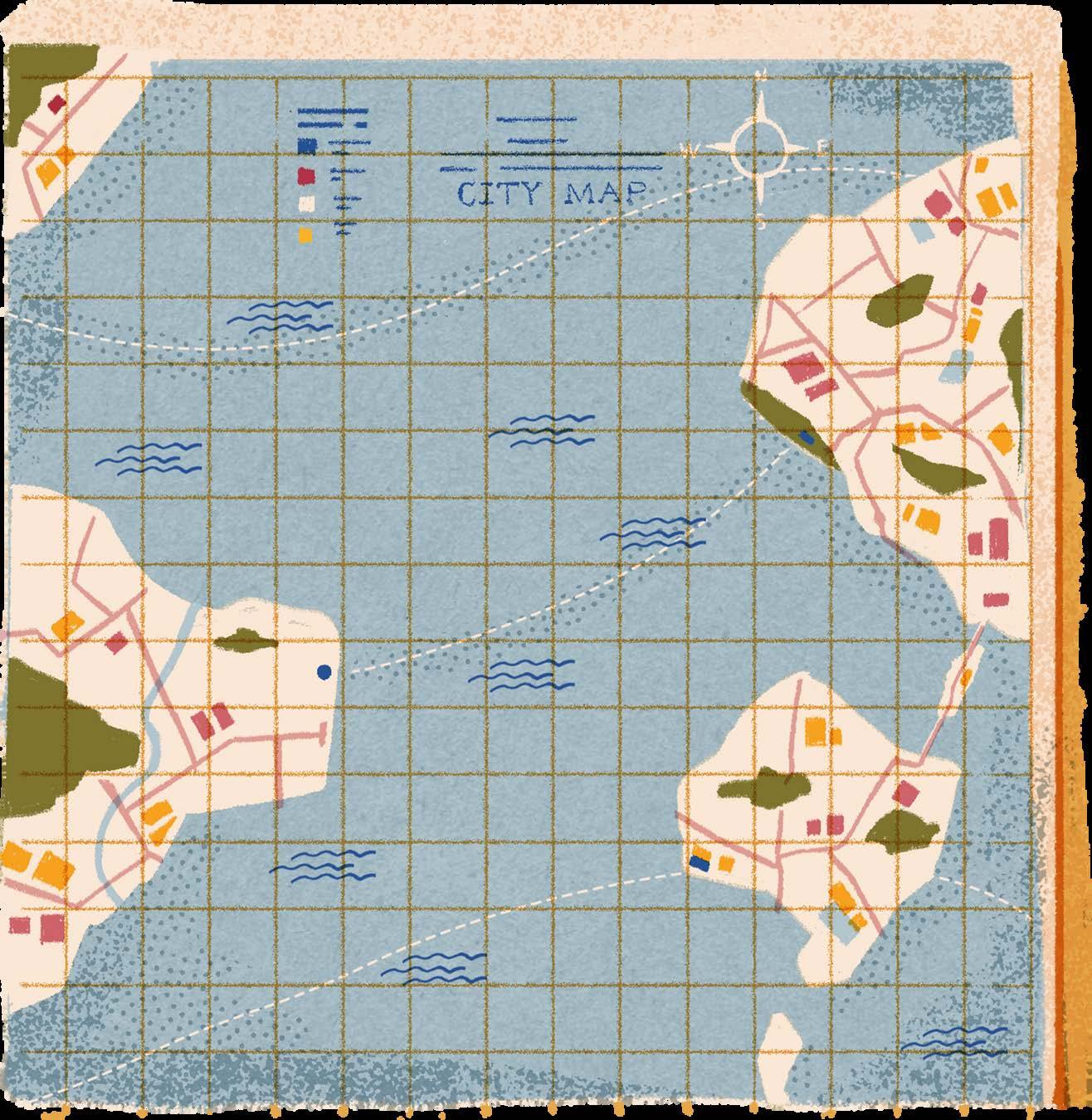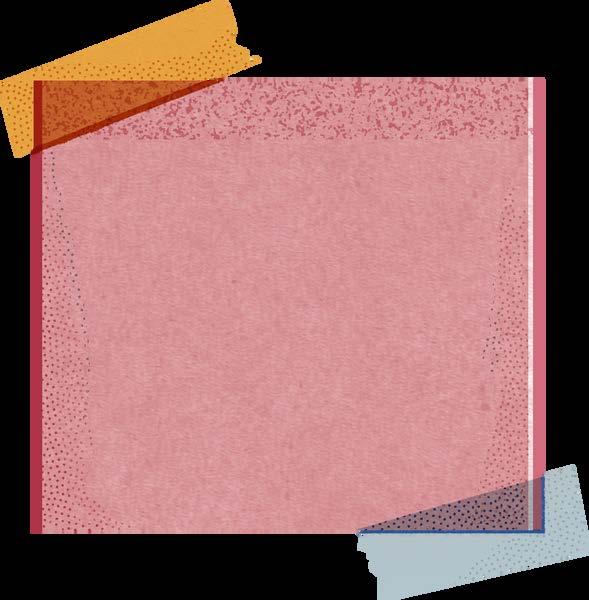







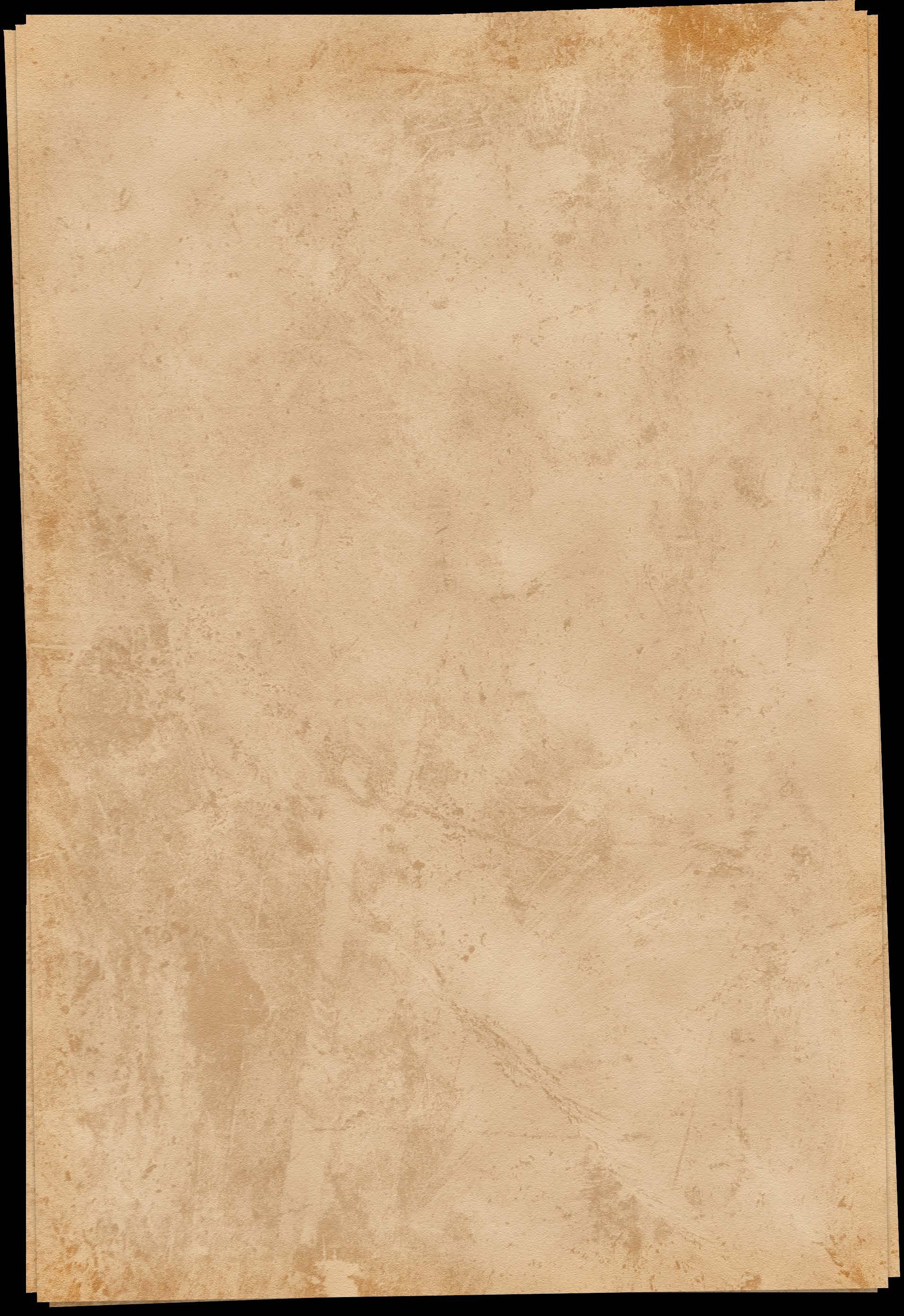
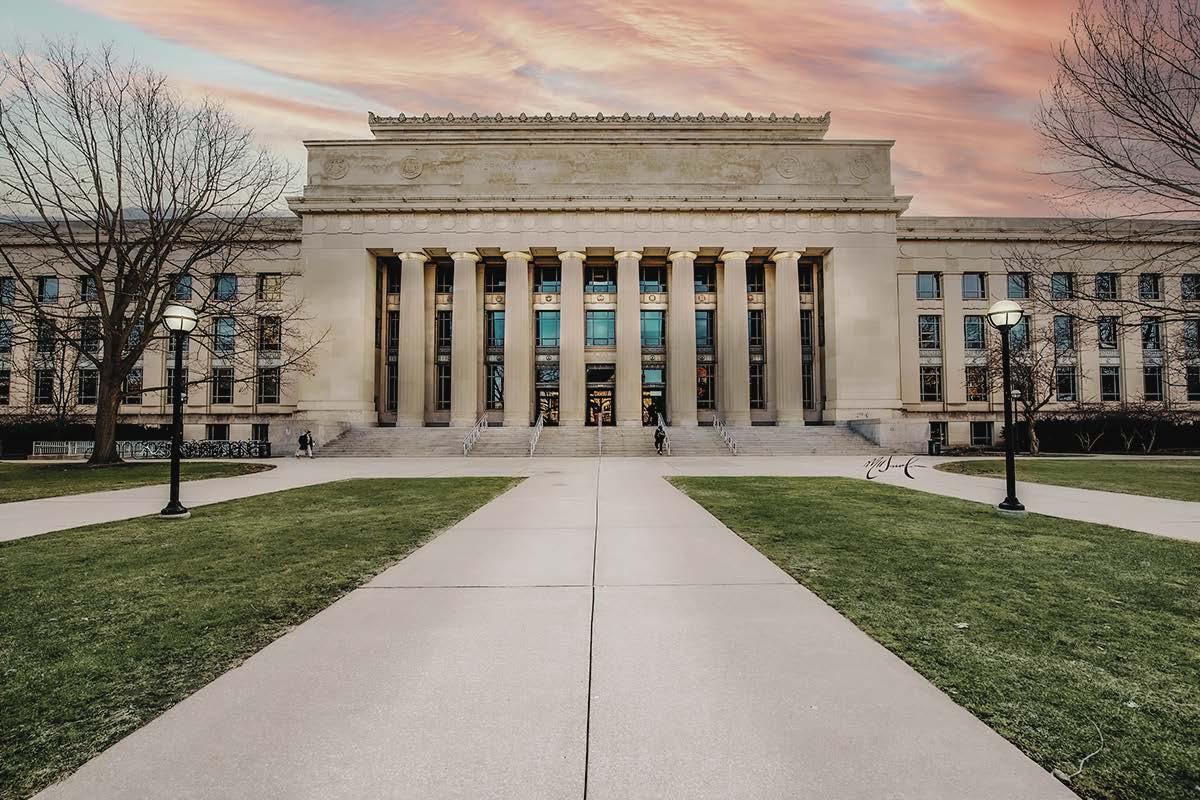

IwritetoyouhavingcompletedmyfifthyearasChairofMichiganPhilosophy. I will be on research leave this coming academic year, and during that time, my colleague Laura Ruetsche will be serving as Chair. Thanks to Laura for agreeing to take on this leadership role: the Department will be in very good hands!
After my leave, the current plan is for me to serve two more years as Chair (i.e., duringacademicyears2025-26and2026-27).Iamlookingforwardtohelping thedepartmenttomaintainitstraditionofexcellenceinphilosophicalresearch and teaching and to strengthen ongoing initiatives for interdisciplinary outreach.
Thereisgreatnewstoreportwithrespecttoourundergraduateandgraduate programs. Whereas nationally humanities course enrollments have been trending downwards in recent years, our undergraduate enrollments have shown a marked increase, due in part to our substantial involvement in both our Philosophy, Politics and Economics (PPE) program and the interdisciplinary Cognitive Science major. With respect to our graduate program, we have had stellar placement of recent graduates. We had an astounding100%placementofgraduatesinacademicpositionsin2024(6/6), and over the past five years (which of course includes the pandemic) we have placed 90% of our graduates in academic positions or legal clerkships (27/30, including 3 clerkships in various circuits of the US Court of Appeals, with one of these having been recently converted into a clerkship on the US Supreme Court). This record is a testament to the excellence both of the students we admit to our highly competitive graduate program and of the training these studentsreceiveduringtheirtimeatMichigan.
In line with past issues of the newsletter, this issue includes reports on our graduate and undergraduate programs, activities, and awards. Our Undergraduate Studies Chair and PPE Director, David Baker, reports on our Philosophy and PPE undergraduate programs and undergraduate students, and our Graduate Studies Chair, David Manley, reports on our graduate program and graduate students. I am contributing a research report on the new project I will undertake during my leave this coming year. Finally, there are reports on our two major endowed lectureships this past year, the 2024 PPE Lecture, featuring Ahkil Reed Amar (Yale), and the 2024 Tanner Lecture onHumanValues,featuring HélèneLandemore (Yale).
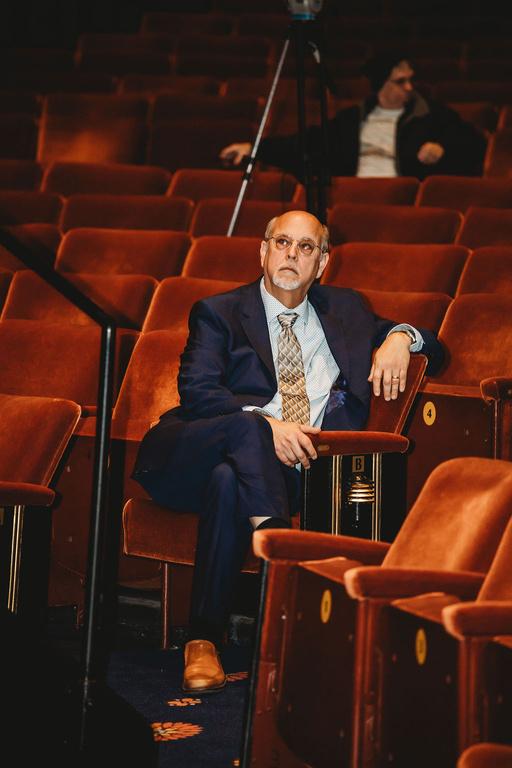
Regarding news and events in the Department during this past year, there are severalitemstoreport:
We are pleased to welcome two new members to the Department this coming year. GabrielShapiro isjoiningusasanAssistantProfessorofPhilosophy.Gabe, a scholar of ancient Greek and Roman philosophy, received his PhD from Princeton in 2022 and has been a Bersoff Faculty Fellow in the NYU Philosophy Departmentforthepasttwoyears. Welcome,Gabe!
Also joining us, as a Lecturer associated with our PPE program, is Rachael Goodyer. Rachael recently received her PhD from Harvard and has interests in ethics, political philosophy, and 19th and 20th century philosophy. Welcome, Rachael!
James Joyce was elected as a fellow of the American Academy of Arts and Sciences (AAAS). Jim joins Laura Ruetsche, Elizabeth Anderson and Gordon Belot as departmental members of the AAAS. Congratulations, Jim! Laura Ruetsche was named as a 2023 fellow of the American Association for the AdvancementofScience.
During December 2023, there was a special university-wide event at which Gordon Belot, James Joyce, and Laura Ruetsche all presented inaugural lectures for their Collegiate Professorships in Philosophy. Gordon, the Lawrence Sklar Collegiate Professor, presented on the topic "The Road to Truth". Jim, the Cooper Harold Langford Collegiate Professor, presented on the topic “Decision Making and the Accuracy of Beliefs”. Laura, the Louis E. Loeb Collegiate Professor, presented on the topic “The Physics of Ignorance: Believe It or Not?”. Louis Loeb and Larry Sklar, each an emeritus professor in the Department, were abletoattendthelecturesinperson. Congratulations,Gordon,JimandLaura!



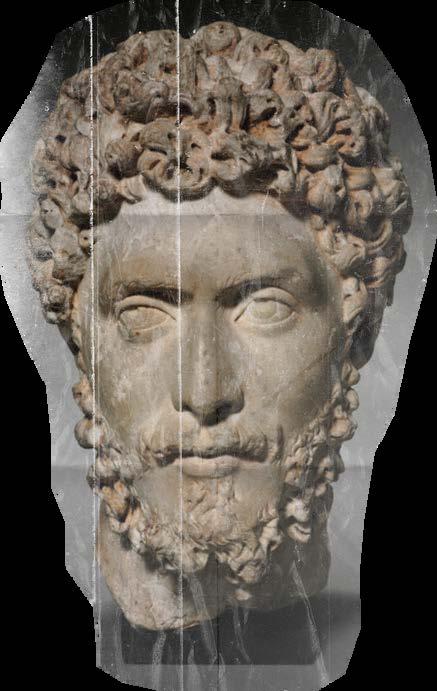
Our regular colloquium series featured talks by Daniel Garber (Princeton), Jonathan Schaffer (Rutgers), Alice Crary (The New School), Alva Noë (UCBerkeley),HamidTaieb(Humboldt),andEricBrown(WashingtonUniversityofSt. Louis). During March 2023, our graduate students organized a Spring Colloquium on the topic The Many Flavors of Metaphysics. Speakers included Shamik Dasupta (UC-Berkeley), Dee Payton (Virginia), Gideon Rosen (Princeton), EricaShumener(Syracuse),andAnnieThomasson(Dartmouth).
In line with past practice, the Department also sponsored events for its various groups. MAP (Minorities in Philosophy) invited Lewis Gordon (Connecticut) to givethemainlectureforthe2024MartinLutherKingJr.Symposiumonthetopic Martin Luther King Jr. from a Black Existential Perspective. Jessica Moss (NYU) presented the featured lecture for the 2024 Ancient Philosophy Workshop. For the 2024 Foundations of Modern Physics (FOMP) Workshop, Doreen Fraser (Waterloo) spoke on the topic How Philosophy of Physics Can Inform Physics: A Case Study, and Bixin Guo (Pittsburgh) spoke on the topic What Can Quantum MechanicsInformUsabouttheFundamentalOntologyoftheWorld?
Appreciation
As in the past, the Department has continued to benefit from the extraordinary generosity of its alumni and friends. Donors have helped us to recruit, train and support outstanding faculty, through such funds as the Malcolm M. Denise Endowment, in honor of Theodore Denise (which funds research), the Nathaniel Marrs Fund (for faculty retention), the Marshall M. Weinberg Professorship in PhilosophyandCognitiveScience(heldby BrianWeatherson),theMaxMendel Shaye Professorship in Public Philosophy, Politics, and Economics (held by Elizabeth Anderson), the William Wilhartz Professorship in Philosophy (held by Sarah Moss), and the James B. and Grace J. Nelson Professorship in Philosophy (held by Sarah Buss). Interdisciplinary initiatives have been supported by the Marshall M. Weinberg Fund for Philosophy and Cognitive Science, the Hough Fellowship in Psychology and Ethics, and the PPE Strategic Fund, the latter of which supports our popular PPE program. Last, but certainly not least, donors have helped us to sustain and improve our undergraduate and graduate programs through support from the Marshall M. Weinberg Endowment for Philosophy (which funds our Frankena and Stevenson graduate student prizes and graduate summer support, among many other things), and the Ilene Goldman Block Memorial Fund (which funds internships for our undergraduate PhilosophyandPPEmajors,amongmanyotherthings).
We acknowledge those who have donated to the Department in 2023-24 at the end of this newsletter. There is a description of our several endowments on our website at https://lsa.umich.edu/philosophy/alumni-friends/endowments.html. The Department also has an Annual Fund that provides essential support for variousundergraduateandgraduateactivitiesandprograms.Ifyouwouldliketo donate to this Fund, you can find information on how to do so at https://lsa.umich.edu/philosophy/alumni-friends/annual-fund-giving.html. We are grateful to all our contributors, past, present, and future: Thanks for your support ofatrulyoutstandingDepartment.
I wish you and yours health and happiness throughout the coming year and beyond.Andasalways,GoBlue!(orasweliketosayinMichiganPhilosophy, GoGrue!*).
Best,
TadM.Schmaltz ProfessorofPhilosophy
JamesB.andGraceJ.NelsonFellow
PhilosophyChair
*: ‘grue’: a predicate introduced by the philosopher Nelson Goodman in Fact, Fiction, and Forecast (1st edition, 1954). A grue object is green before some future time t and blue thereafter. Goodman uses the predicate to introduce “the newriddleofinduction,”whichisillustratedbythefactthatpastevidencethatan emerald,forinstance,isgreenseemstoconfirmequallythatitisgrue.

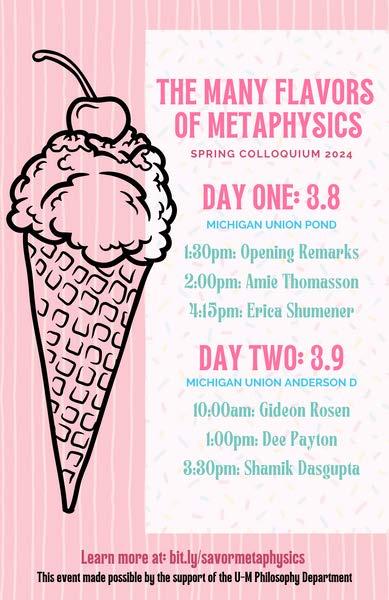









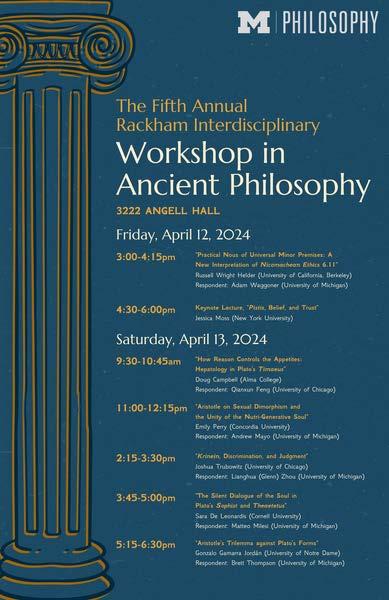








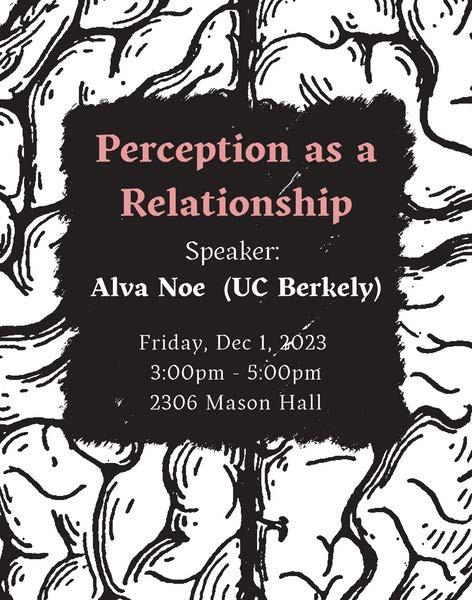



As I said to our graduates this May: greetings to my fellow UM philosophy alumni! Meet the new director of undergraduate studies, same as the old director of undergraduate studies. It seems like only yesterday I was writing my last entry in this series of undergraduate newsletter reports, but in fact it was 2021. Thanks to Jim Joyce for bringing his steady hand to the role for the two interveningacademicyearswhileItookabreakfromit.
In that time, the University has fully returned to the routine that existed before the global pandemic. But in other ways, things are not the same. Generative AI is changing the landscape in undergraduate education. Guidelines for how and how not to use large-language models in connection with a class are becomingthenormonoursyllabi.
While the vast majority of our students have chosen not to misuse these technologies, the reality is that they can be misused and we must plan for that possibility. Many colleagues have reported to me that they are adding further in-class assessments (blue book exams, for example) to their courses. These can be difficult to implement well in philosophy, since an assignment with real philosophical depth will typically require days of work rather than one or two hours.Butit’sachallengeweareworkingtomeetasadepartment.
Fortunately AI has offered new educational opportunities as well as new difficulties. Philosophy has long been one of the few fields to grapple deeply with the conceptual possibilities of intelligent machines. Our course offerings are beginning to extend beyond long-standing questions about the nature of consciousness and the mind, into ethical and political issues about the role of highlycapablealgorithms,includingonesthatdon’thavea“mind.”
Renee Jorgensen’s course on Data and the Just Society is one example. Algorithmic discrimination and data privacy are among the issues covered, with an innovative assignment structure that gives students multiple flexible opportunitiestoproduceworkmeetingthecourserequirements.
Another related newer course is Gordon Belot’s 400-level offering on Logic, Computation and Learning. This course melds classic topics on philosophy of computationandlogic(suchasthehaltingproblem,Church-Turingthesis,and other topics that may be familiar to logic fans) with more recent questions surroundingdeeplearningneuralnetworks.
The University of Michigan undergraduate journal Meteorite has had another successful year. The journal’s publication record used to be pretty sporadic, but over the past seven years they have steadily produced an issue every spring. The 2024 issue includes essays on epistemology, the metaphysics of causation, feminist philosophy and philosophy of science, from contributors studying in the United States, Canada and the UK. It also features fascinating interviewswithtwoofourdistinguishedseniorfaculty,ElizabethAndersonand Peter Railton. This and many previous issues can be found at https://meteorite.philosophy.lsa.umich.edu/past-editions/
Congratulations to Meteorite editor-in-chief Eissa Haydar, managing editors Abigail Peacock and Kun Liu, and editorial board Ammar Ahmad, Ethan Eliassen, Jameson Kanary, Eilene Koo, Joshua Medintz, Alex Nowakoski, Brad O’BrienandIreneWang.LikemanypastcohortsofMeteoriteeditors,theyhave made the faculty very proud. Thanks to all the Meteorite alumni among our readersforsettingthestagefortheirsuccess!
In the Winter 2024 semester we added a new large course: PHIL 215— Practicing Ethics. Conceived and taught by Anna Edmonds, this course is concerned with bringing ethics into students’ own lives. Rather than introducing them to abstract ethical puzzles and theories of the nature of right and wrong, PHIL 215 focuses on helping well-meaning students to improve theirownmoralbehavior.
Thetheorybehindthecourseisthatmanyofthemoralmistakeswemakearise not from fundamental misunderstandings of ethical principles, but rather from lazy or biased choices that lose sight of our values. Students study techniques for preventing these ethical oversights and becoming the people they would liketobe.
PHIL 215 is fully enrolled with 200 students signed up for the Fall ’24 term, so it seemslikeourundergraduatesareinterestedinthisnewapproach!
Our annual graduation reception for philosophy majors is always an occasion to award our undergraduate prizes. These honor students (graduating seniors andsometimesothers)withspecialachievementsinourcurriculum.TheHaller Term Prize, awarded every Fall and Winter semester, recognizes outstanding work done by an undergraduate in our 400-level philosophy courses. (Because there isn’t time to evaluate candidates between exams and graduation, the Winter term prizes are normally awarded in the following academicyear.)
For Winter 2023, the Haller was awarded to Rebecca Giachini for her work in myownPHIL480:PhilosophyofReligioncourse.Rebeccawrestledwithsome challenging philosophical questions over the course of the term, and excelled especially at the in-class argumentative essay, the most difficult assessment I assigned.
Named for a distinguished long-time member of the UM philosophy faculty during much of the 20th Century, the William K. Frankena Prize honors graduating majors (normally just one) who exemplify excellence throughout the pursuit of their degree in philosophy. This year we had a remarkable Frankena winner to honor. In addition to distinguishing himself in our major, Bennett Dombcik received the 2024 Raoul Wallenberg Humanitarian Award from the UM Honors Program for his thesis on the ethics of war. One of the Honors Program’s senior graduation awards, this is an extremely high honor that hasn’t been awarded to any previous philosophy major in my 16 years at Michigan. The last time a philosophy major received any of the honors graduationawardswas2020!Sothisisaveryhighhonorindeed.
Bennett also won (together with his debate partner, political science major Kelly Phil) the 2024 National Debate Tournament. This is the first time a UM team has won the nationals in the 121 years since the team was founded. The 2023/24 debate season focused on the topic of nuclear weapons, an issue withobviousconnectionstohisthesis.


The Fall 2023 Haller term prize went to Carrie Ciecierski, for her work in Renee Jorgensen’s 400-level Topics in Political Philosophy course. In addition to the assigned readings, Carrie independently read two additional books (!) and wrote an excellent essay on the question of whether the “gamification” of our activitiesthreatenshumanfulfillment.


BYPROFESSORDAVIDBAKER

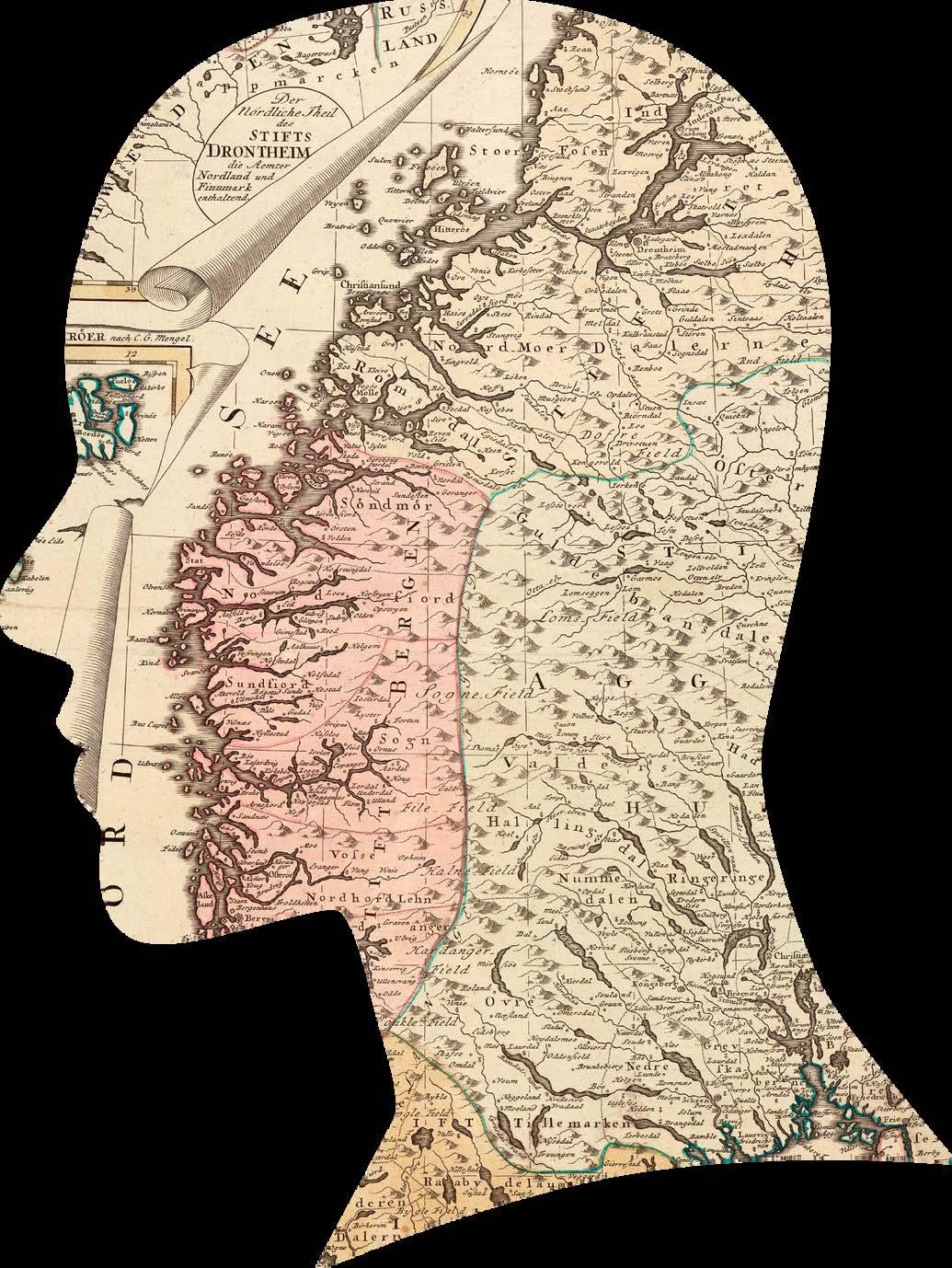


Matthew Allen
Tiffany Crews
Hannah Deahl
Hanna Denes
Bennett Dombcik
Jacob Dominski
Abigail Ehrhardt
Marina Elia
Libby Engel
Jacob Finvarb
Rebecca Giachini
Eissa Haydar
John Jerome Kish
Carter Koch
Yuxuan Luo
Jiyang Lyu
Lucy Malcoun
Joshua Medintz
Abigail Peacock
Rafael Skrobola
James Stevenson
Claudine Waggoner
Irene Wang

James White
BennettDombcik: TheLawsofWar:AContractualistApproach
Advised by Elizabeth Anderson with reader Renee Jorgensen
EissaHaydar: CostlyInventionInformsCompositionalSignaling
Advised by James Joyce with reader Gordon Belot
TiffanyCrews: PaternalisticInterferenceinFamilyPlanning
Advised by Ishani Maitra with reader Dan Lowe
YuxuanLuo: EssenceandMathematicalUnderstanding:CaseStudies
Advised by Jamie Tappenden with reader Sarah Buss
LucyMalcoun:LegalIndeterminism:AnExploration
Advised by Sarah Buss with reader Ishani Maitra
JiyangLyu: TheNatureofSpace&Spacetime
Advised by Gordon Belot with reader David Baker
AbigailEhrhardt: It'sBeen75Years:WhatisAppliedPhilosophy?
Advised by Mika LaVaque-Manty with reader Laura Ruetsche

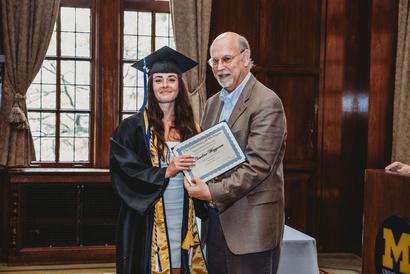
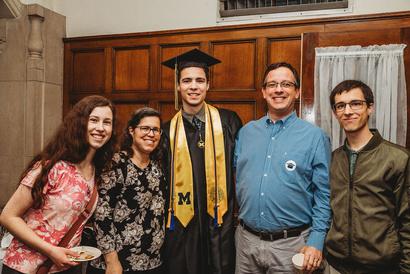
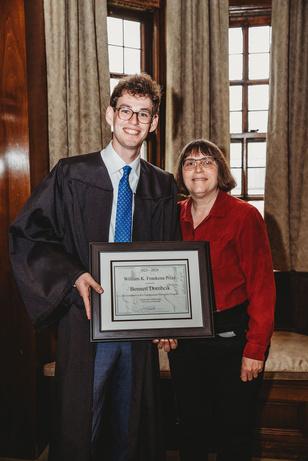
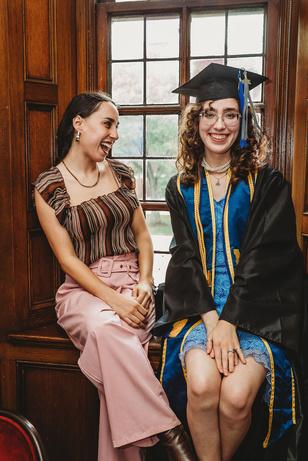
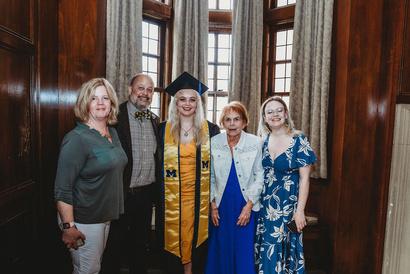

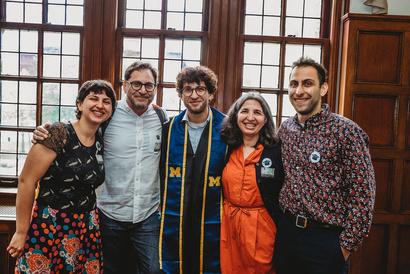
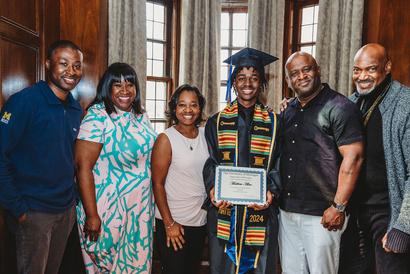




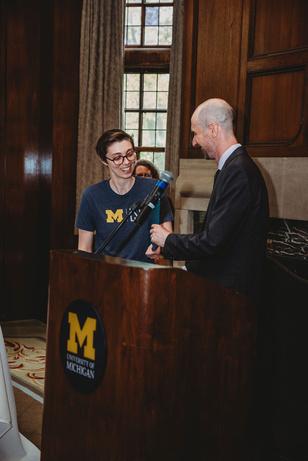
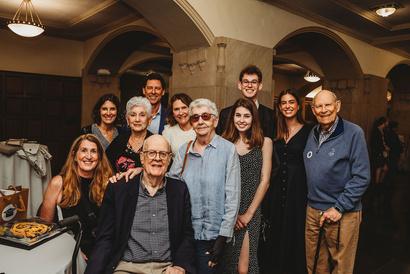
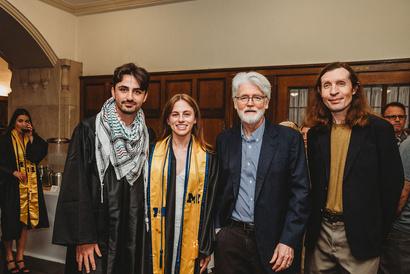
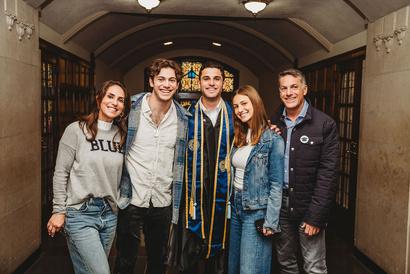
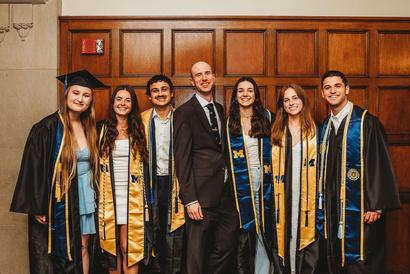

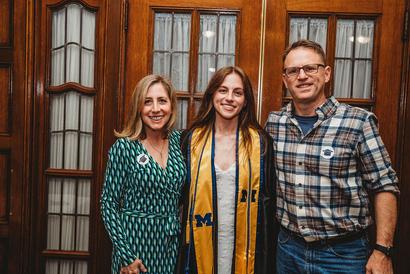


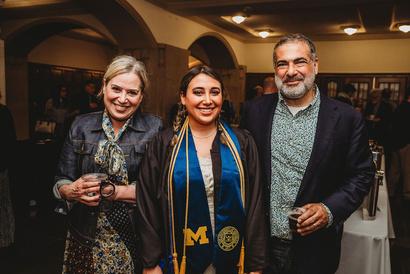
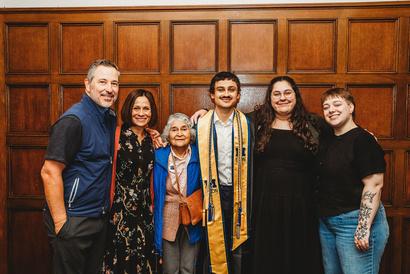



The Program in Philosophy, Politics and Economics (PPE) continues to attract some of the most proficient UM students with interests in political thought and related issues. Our incoming class was chosen from nearly 100 applicants, and the qualifications of these students are breathtaking. We really are fortunate to havetheopportunitytoeducatesomeofUM’sbestandbrightest.
Our PPE students have always impressed us with their choices of interdisciplinary themes for their major. The major’s theme requirement is a flexible track within our curriculum, in which students combine three courses from different fields of study within the university to pursue a special interest within the very broad purview of political economy. Among the dozens of excellentthemesourstudentsdeclaredthisyear,hereareafewthatstruckme:
Corporations and Society (combining courses from Anthropology, EconomicsandtheRossSchoolofBusiness)
International Development (combining International Studies, Economics andacourseonIrishpoliticstakenabroadinIreland)
Persuasion and Public Opinion in Political Ideologies (combining Political ScienceandHistory)
Other PPE students pursued their specific interests through our senior honors thesis program. These students follow the thesis process for one of the three subject areas, but their work is always interdisciplinary in spirit. This year the followingstudentsdefendedthesesinPPE:
Elior Waskow, advised by Kathyryn Dominguez with readers Nicholas Montgomery and Dean Young: Rainfall, Income, and Religion in Africa: ExplorationUsingGPCCandWVSData
Rafael Skrobola, advised by David Baker with reader Victor Caston: The OriginofPoliticalAuthority
Rob Lucas, advised by Murad Idris: Beyond Sportwashing: A Political EconomyofSportsintheGulfStates
The annual UM PPE Lecture Series brings distinguished scholars and practitionerstocampustoaddressourstudentsandmeetwiththeminformally.
Our 2023 speaker was Danielle Allen of Harvard University, who spoke on the subject of her book, Justice By Means of Democracy. Allen argued for a liberal democratic vision of freedom and equality she calls “power-sharing liberalism,” in which powerful groups are prevented from dominating those less powerful. The lecture is always a highlight of the year for our PPE students, this year especiallyso.
The Ian Fishback Fellowship honors the late Ian Fishback, a 2020 UM philosophy PhD and veteran of the United States Army. As a special forces officer,FishbackfoughtforthehumanrightsofdetaineesduringtheGlobalWar on Terror. His open letter to Sen. John McCain inspired new legislation barring the mistreatment of prisoners. The Fishback Fellowship was endowed by Robert J. Donia and Jane Ritter, and it is administered in cooperation with the DoniaCenterforHumanRights,whichtheyalsofunded.
The 2024 Fishback Fellowship winner was PPE major Mario Thaqi, who used the fellowship funds to attend the Geneva Summit for Human Rights and Democracy.Marioreports:
“In May I attended the Geneva Summit for Human Rights and Democracy with support from the Ian Fishback Fellowship. During the summit, I was given the opportunity to hear testimonies from a variety of human rights activists and former political prisoners about their struggles for democracy and freedom. With the summit occuring weeks before the main session of the United Nations Human Rights Council, the summit shined light on the true face of the world’s worstauthoritarianregimesandwhatitmeanstofightforfreedom.
During the summit I heard from former French Prime Minister Manuel Valls, a member of the Zimbabwean Parliament, a member of the Ukrainian Parliament, and many others. However, the most impactful was Lesther Aleman, a Nicaraguan student protest leader who was sentenced to 13 years in prison whenhefamouslystooduptoPresidentDanielOrtegaduringapublicforumin 2018. Aleman had to flee the country and his entire life was uprooted at 20 years old in the pursuit for a more democratic Nicaragua. His youth and courage inspire me to take a more active approach in advocating for U.S. condemnation of human rights abuses and authoritarian regimes around the world.”
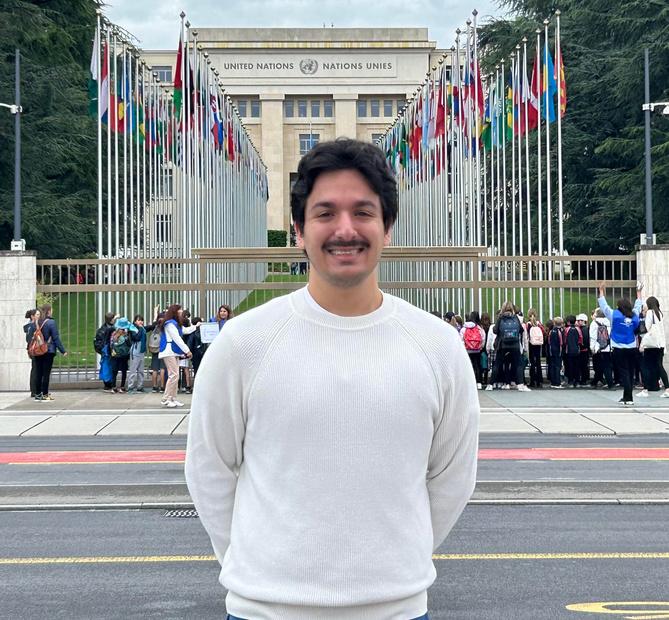

OurPPEgraduationreceptionfeaturedamovingspeechbyVictorStrecher.Vic is a scholar and an entrepreneur: a professor at UM public health and also the founder of the health technology companies HealthMedia and Kumanu. He is also the author of two books on the importance of purpose in life, for both health and fulfilment. His address touched on questions of purpose and included valuable advice for the students about how to combine their interests in our three connected disciplines to better their own lives and others’. We’ve had many wonderful PPE graduation speeches in my time with the major, but I can’t think of one where so many students’ family members have approached meafterwardwithkindwordsaboutthespeaker.
The new academic year is already upon us. I’m looking forward to another year ofthoughtfuldiscussionsandgreatscholarshipwithouramazingPPEmajors.







Mariam Alshourbagy
Justin Berger
Brady Bull
Ryan Carreiro
Nirbhay Chatani
Nancy Chen
Tao Chen
Adam Covert
Ethan Coyle
Anna Forrest
Jane Hooberman
Jingfei Huang
Lauren Hughes
Bowen Jiang
Jackson Joyce
Maddy Ligon
Benjamin Linden
Rob Lucas
Timothy Marvin Jr.
Zachary Massat
Ella McKenzie
Lauren Nehorai
Noah Pearlstein
Kanoa Perman
Nicholas Pomatto
Joseph Rivera Jr.
Jake Sadow
Rafael Skrobola
Dylan Spector
Emma Suh
Deren Güzel Tekçe
Peter Timon
Claire Wang
Elior Waskow
Henry Zhou
VicStrecher(pronouncedStreker)isaProfessorintheDepartment ofHealthBehavior&HealthEquity.In1995,Vicjoinedthefacultyas a Professor and Director of the Department of Cancer Prevention and Control in the UM Comprehensive Cancer Center, where he served for 15 years. He also founded the UM Center for Health CommunicationsResearch,studyingthefutureofdigitally-tailored health communications, and has been Principal Investigator on over$45millioninNationalInstitutesofHealthresearch.In1997, using a UM-supported technology transfer process, Vic founded HealthMedia,adigitalhealthandwellnesscompanythatwassold to Johnson and Johnson in 2010. More recently, Vic created Kumanu (Maori for "nourish" and "cherish"), a company that uses cutting-edge behavioral research and neuroscience, artificial intelligence, and advanced predictive modeling to help people optimize their mental/emotional health and wellbeing. These successfulventureshavereachedtensofmillionsoflives.




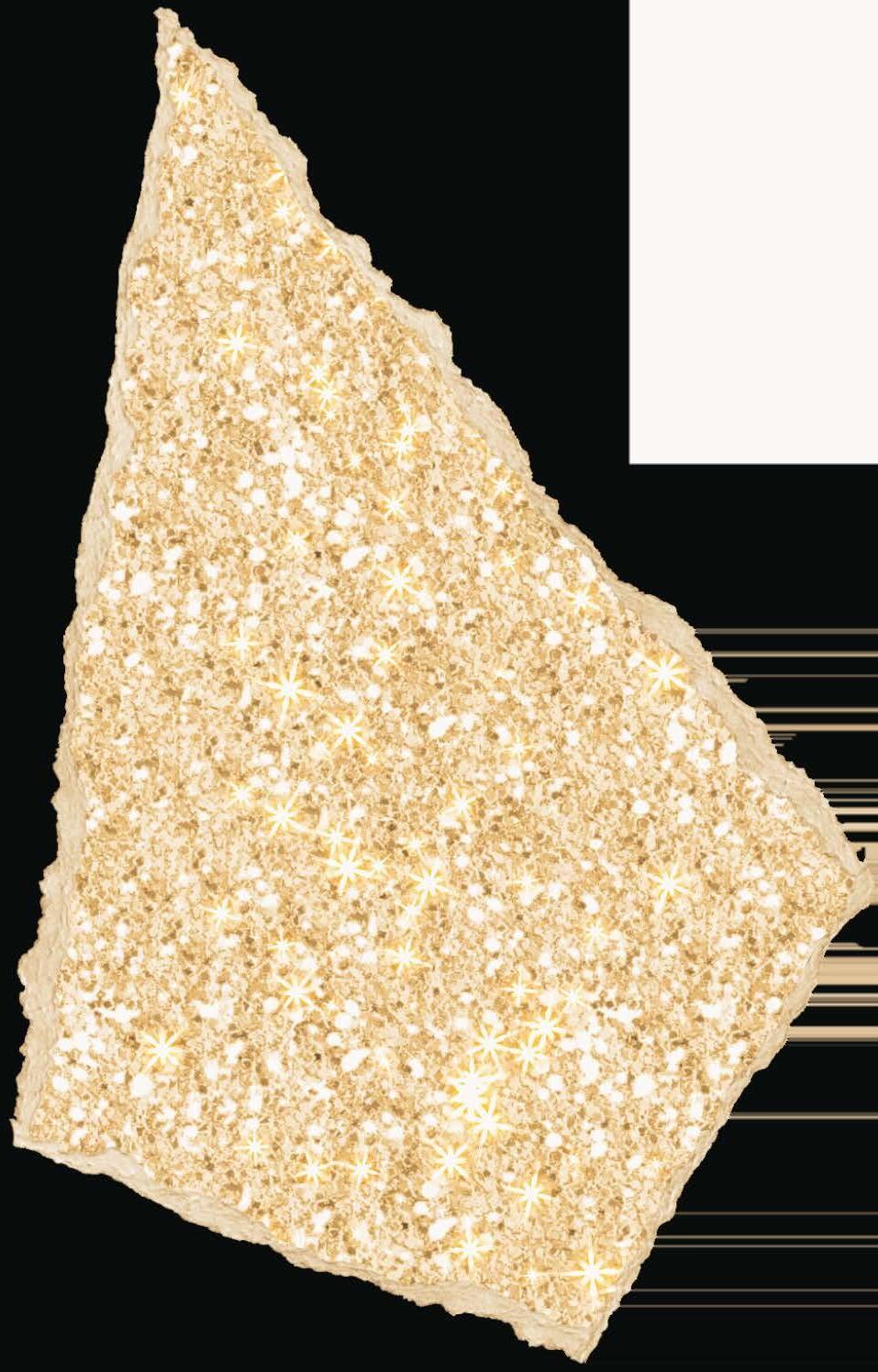
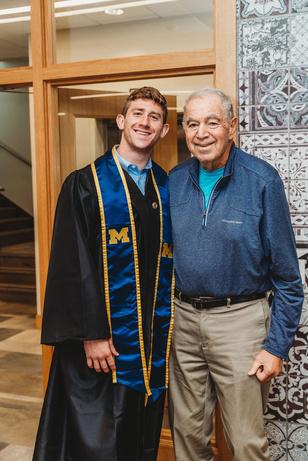
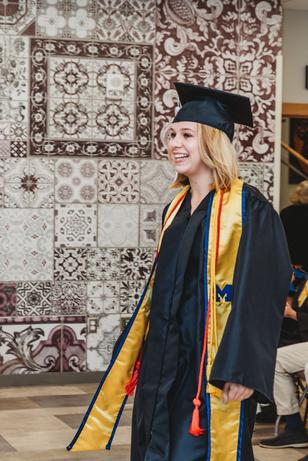
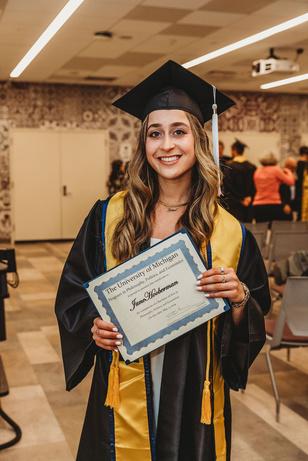

VIC STRECHER
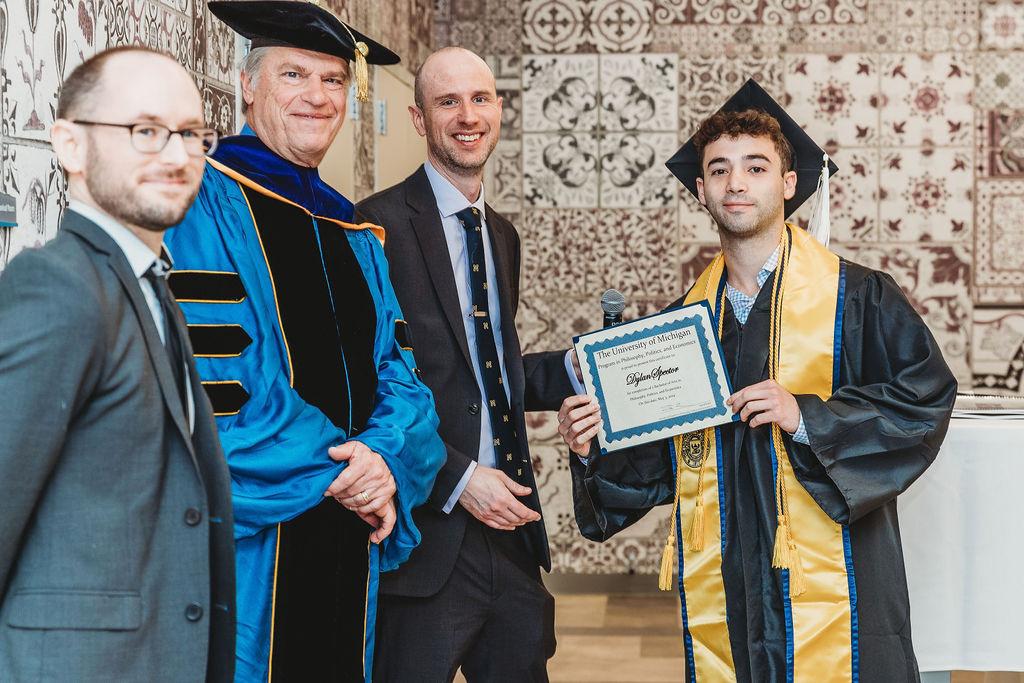

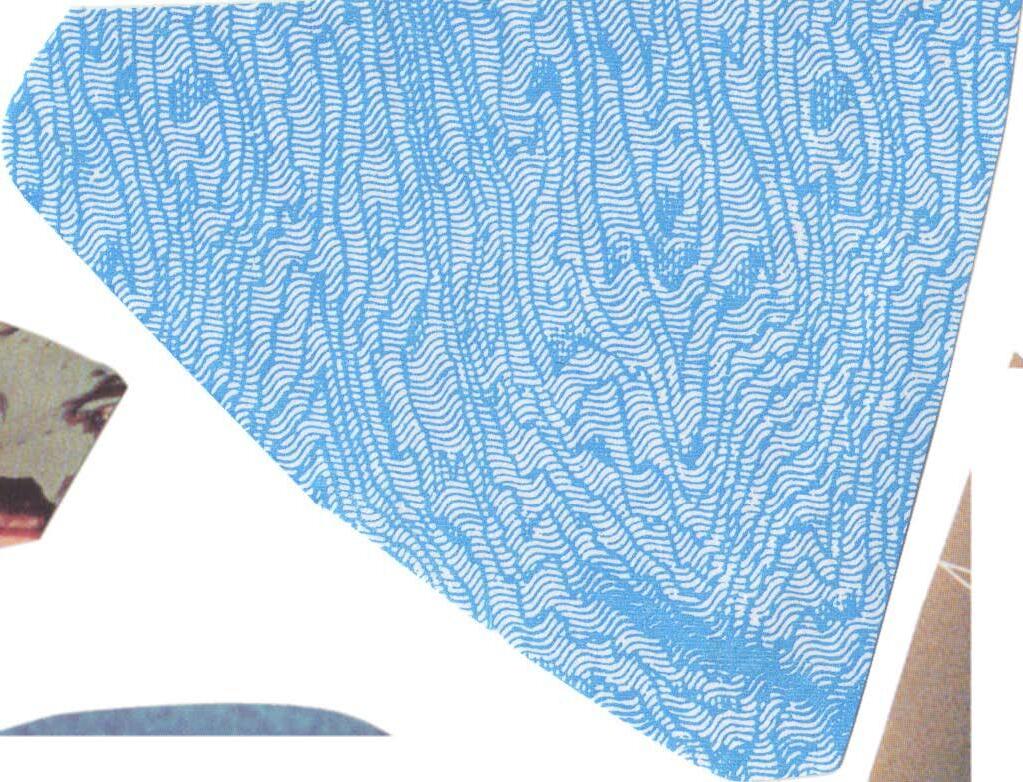

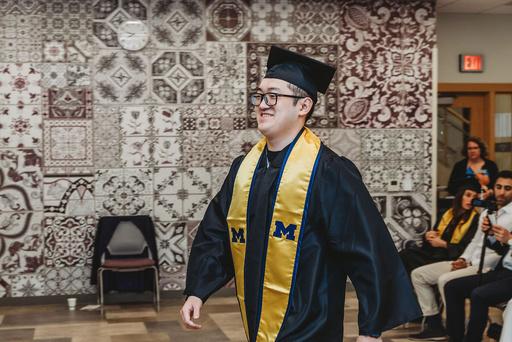


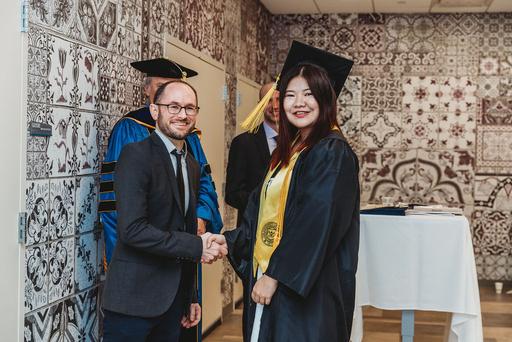



Thispastyear,thePhilosophydepartmenthasbeenvibrantandactive.We’re especially excited about the amazing work our graduate students have accomplished: publishing in excellent journals, presenting at conferences all over the world, and getting involved in workshops and summer institutes. They are pushing the boundaries of philosophy and making waves across a wide range of subdisciplines within the field. On top of that, they have been the driving force behind a huge variety of events, from colloquia to reading groups,thathaveenrichedourdepartment’sintellectuallife.
Our graduate students are also leading the charge on making philosophy more inclusive. They’ve organized affinity groups and interdisciplinary workshops that are all about creating a supportive, diverse environment whereeveryonecanthrive.Theireffortsinpromotingequityanddiversityare acornerstoneofourdepartment’songoingcommitmenttothesevalues.
As you flip through this newsletter, you’ll see the breadth of our students’ accomplishments over the past year. From impactful publications and conferencepresentationstoorganizingmajoreventsandearningprestigious awards, it’s an outstanding record of academic excellence and professional engagement.
Inthelastyear,ourstudents’publicationshaveincluded:
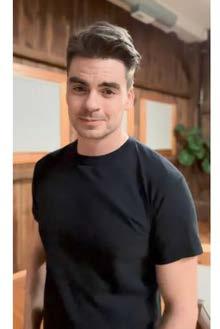

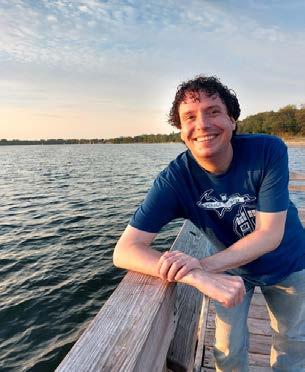
, "Politics Without Romance, Without Romance: A Meta-Problem for Virginia Political Economy," in Political Process: New Perspectives on the Virginia and Bloomington Schools, eds. Christopher J. Coyne, Donald J. Boudreaux&BrianKogelmann,Rowman&Littlefield(forthcoming).
FranciscoCalderónOssa,"The(beta)decayofeffectiverealism,"atthe Society for Philosophy of Science in Practice Biennial Meeting, Ann Johnson Institute for Science Technology and Society, University of South Carolina, Columbia SC, May 2024; and at the Fourth IrvineLondon-Munich-PoliMi-Salzburg Conference in Philosophy and Foundations of Physics, King's College London, United Kingdom, June 2024.
―, "Feminist and Trauma-Informed Approaches to Teaching Formal Philosophy," co-presented with Thomas Colclough and Helen Meskhidze, First Feminist Philosophy of Physics Workshop, University ofMichigan,AnnArborMI,June2024.
Aaron Glasser, "Steering Salience," Functions of Attention Workshop, Oslo, Norway, February 2024; and at the Ethics of Attention Workshop, Budapest,Hungary,July2024.
Gillian Gray, “Ambivalence, Identity, and Social Groups,” Michigan-MIT SocialPhilosophyWorkshop,MIT,CambridgeMA,April2024.
, “Ambivalence and Authenticity,” W&L Philosophy colloquium talk, Washington and Lee University, Lexington VA, March 2024; and at Social Ontology Faces the Future, Boğaziçi University, Istanbul, Turkey, May2024.
, "Social Groups and Identity Ambivalence," North American Society forSocialPhilosophy,CreightonUniversity,OmahaNE,July2024.
, "Finding Your People, Finding Yourself," International Social OntologySociety,DukeUniversity,DurhamNC,July2024.
Emma Hardy, “Huitlacoche, Corn Smut, and Being Food,” Philosophy ofFoodGraduateWorkshop,UniversityofMilan,March2024.
,
“Are we what we eat? Personal Ontology and the Philosophy of Food,” Hamilton College Food Justice, Aesthetics, and Morality Workshop,HamiltonCollege,September2023.

Jason Byas, "Seeing the State Through For a New Liberty," Independent Review 28(4):553–565,(2024).
Francisco Calderón Ossa, "The Causal Axioms of Algebraic Quantum Field Theory: A Diagnostic," Studies in History and Philosophy of Science 104:98–108,(2024).DOI:https://doi.org/10.1016/j.shpsa.2024.01.006
Shannon Chang, “The major role of Listeria monocytogenes folic acid metabolism during infection is the generation of N-formylmethionine,” co-authored with Ying Feng and Daniel A Portnoy, mBio 14 (5), (2023). DOI:https://doi.org/10.1128/mbio.01074-23.
Mica Rapstine, "Political Rage and the Value of Valuing," Philosophy 98 (4):451–475,(2023).DOI:https://doi.org/10.1017/S0031819123000244.
Julian Rome, “Plato’s Republic Today: A Queer Utopia,” Southwest Philosophy Review 40 (1): 11-18, (2024). DOI: https://doi.org/10.5840/swphilreview20244013.
Andthepapersacceptedforpublicationinclude:
Jason Byas, "Two-Tiered Mixed Theories of Punishment Are Not Safe fromtheAngryMob," AustralasianJournalofPhilosophy (forthcoming). , "Entrepreneurship as Political Action," Public Affairs Quarterly (forthcoming).
, "Aggression Abroad: Noninterventionism Without National Sovereignty," Global Federalism: Liberty and Security in an Anarchical World,ed.BrandonChristiansen,PalgraveMacMillan(forthcoming). Francisco Calderón Ossa, "Self-normalizing Path Integrals," coauthoredwithIvánM.Burbano, FoundationsofPhysics (forthcoming).
Now consider the truly impressive range of work our students have presentedatconferences:
Mitch Barrington, “Duty and Risk,” presented at the Slippery Slope Normativity Summit, Lillehammer, Norway, March 2024; at the Australasian Association of Philosophy, Perth WA, Australia, July 2024; at the Formal Epistemology Workshop, Canberra ACT, Australia, July 2024; and at the Rocky Mountain Ethics Congress, Boulder CO, August 2024.
―, “Absolutist AI,” Meeting of the American Philosophical Association (APA)CentralDivision,NewOrleansLA,February2024.
―, “Fickleness,” presented as part of the Australian National University ColloquiumSeries,CanberraACT,Australia,July2024.
Jason Byas, "The Problem of Pervasive Historic Injustice," Meeting of the American Philosophical Association (APA) Eastern Division, New YorkNY,January2024.
, "Beyond Reform & Revolution, or, How to Abolish the Criminal Law," Michigan-MITSocialPhilosophyWorkshop,CambridgeMA,April2024.
―, “Philosophy, Food, and Making Things Better,” Culinary Mind Quarter-BakedForum,online,October2023.
―, “What is local food?” Michigan Farmer’s Market Association Annual Conference,EastLansingMI,February2024.
, "Huitlacoche & Corn Smut: A Case Study of Which Things Get to Be Food," 2024 Agriculture, Food, and Human Values Conference, Falk College,SyracuseNY,June2024.
, "Local Food and Producer-Only Farmer's Markets," 14th Braga MeetingsonEthicsandPoliticalPhilosophy,UniversityofMinho,Braga, Portugal,June2024.
Malte Hendrickx, “Difficulty and Demandingness,” at the Institute for Humane Studies Graduate Student Conference, Arlington, Virginia, June 2023; at PONS Research Workshop, University of Tübingen, Tübingen, Germany, June 2023; and at the Philosophy, Politics & Economics (PPE) Society Annual Meeting, New Orleans LA, November 2023.
,“TheOddsFormulation:BayesianUpdatingMadeEasy,”atEffective Altruism,UniversityofTübingen,Tübingen,Germany,June2023.
, “The Mind-Body Problem Abridged: A Primer,” at Effective Altruism, UniversityofTübingen,Tübingen,Germany,July2023.
, “Philosophy of AI: Bruckner on How to Evaluate Deep Learning Models,” guest lecture, University of Tübingen, Tübingen, Germany, July2023.

, "Retributive Failure," Institute for Humane Studies Junior Fellows Program,RaleighNC,May2024.



,
“Effort,” 30th Conference of the European Society for Philosophy and Psychology (ESPP), Prague, Czechia, August 2023; at New Work in Philosophy of Mind and Philosophical Psychology, University of Tübingen, Tübingen, Germany, January 2024; and at Mind and Cognition: Philosophical and Psychological Perspectives, University of Tübingen, Tübingen,Germany,February2024.
―, “The Mind in Moral Psychology: A history,” guest lecture, University of Tübingen,Tübingen,Germany,March2024.
, “Open Research Questions in the Study of Effort,” Guest Lecture, UniversitédeNeuchâtel,Neuchâtel,Switzerland,April2024.
, “Moral Burnout,” Institute for Humane Studies Junior Fellows Program, Raleigh NC, May 2024; Practical Ethics Conference, University of Tübingen, Tübingen,Germany,May2024;andattheInternationalSocietyforUtilitarian StudiesAnnualMeeting,London,UnitedKingdom,June2024.
Gabrielle Kerbel, "Fundamental Laws and the Methodology of Science", colloquium at the Meeting of the American Philosophical Association (APA) CentralDivision,NewOrleansLA,February2024.
,
"The Principal Principle and Educated Guesses", presented at the RationalityandRealityWorkshop,UCBerkeley,BerkeleyCA,March2024;at the Northeastern Epistemology Workshop, Northeastern University, Boston MA, April 2024; and at the World Congress of Philosophy, Rome, Italy, August2024.
,"Self-UnderminingAssumptionsintheRelativityObjectiontoPresentism", LanCog Summer Metaphysics Workshop on Time, Lisbon, Portugal, July 2024.
Zuzanna Lutrzykowska,panelspeakeron“TheHumanitiesandArtsinOur Lives as Doctors and Physicians in Training,” University of Michigan LSA InstitutefortheHumanities,January2024.
―,“PrivacyandPrivilege:TensionsinPhysicianAdvocacy,”AnnualMedical Student Ethics Conference, MacLean Center for Clinical Medical Ethics and AldenMarchBioethicsInstitute,ChicagoIL,April2024.
Lorenzo Manuali, “Transformative Experience, Testimonial Evidence, and Imagination,” Northern Illinois University Graduate Student Conference, NorthernIllinoisUniversity,DekalbIL,October2023.
, “Transformative Experience, Testimonial Evidence, and Imagination,” Western Michigan University Graduate Student Conference, Western MichiganUniversity,KalamazooMI,February2024.
, “What is Behavioral Addiction?” Knowledge, Information, and Society Workshop,UniversityofMichigan,AnnArborMI,April2024.
,“WhatCausesBehavioralAddiction?”Elections,PublicPolicy,andMedia PapersWorkshop,sponsoredbytheInstituteforHumaneStudies,University ofTexas,AustinTX,June2024.
, “Democratizing LLMs,” AI, Cybersecurity, and National Security Workshop, sponsored by the Institute for Humane Studies, Virginia CommonwealthUniversity,RichmondVA,July2024.

, “Transformative Experience, Testimonial Evidence, and Imagination,” World Congress of Philosophy, Sapienza Università di Roma, Rome, Italy, August2024.
AG McGee,“ADutytoHeedSelf-DeterminationThroughUsingDeclared Pronouns,” symposia talk at the Meeting of the American Philosophical Association(APA)CentralDivision,NewOrleansLA,February2024.
Lindy Ortiz, "Hijacked Sexual Violations," Society for Philosophy of Sex and Love, virtual, March 2024; at the Michigan-MIT Social Workshop, Cambridge MA, April 2024; and at the Society for Philosophy in the ContemporaryWorld,WorcesterMA,July2024.
Julian Rome,"Plato’sRepublicToday:AQueerUtopia,"partofaninvited panel titled "The Contemporary Relevance of Ancient Philosophy," Southwestern Philosophy Society Conference, Baylor University, Waco TX,November2023.
Sarah Valdman, “A Theory of Sin (AI Alignment and the Fall of Man),” University of Toronto Philosophy of Religion Workshop, Toronto ON, Canada,December2023.
, “The Chinese Room as a Reductio of the Analytic Method,” New Orleans Invitational Seminar in Ethics (NOISE), Tulane University, New OrleansLA,March2024.
, “Loneliness: The Skeptical Emotion,” Social Ontology 2024 Conference,DukeUniversity,DurhamNC,July2024.
Adam Waggoner, "Affective Dilemmas: A Practical Guide," keynote address at the Purdue Undergraduate Philosophy Conference, Purdue University,WestLafayetteIN,April2024.
Margot Witte, “Murky Wants, a Problem for Consent-Based Theories of Sexual Ethics,” presented at the Meeting of the American Philosophical Association (APA) Eastern Division, New York NY, January 2024; at the Southern Society for Philosophy and Psychology (SSPP), Cincinnati OH, March2024;andattheNorthwesternSocietyfortheTheoryofEthicsand Politics(NUSTEP),NorthwesternUniversity,EvanstonIL,May2024.
Sophia Wushanley, “Is Privacy More Than Informational Norms?” COMPASS flash talks, University of Michigan, Ann Arbor MI, September 2023.
, “Seeking Truth and Gratification on Twitter,” colloquium talk at the Meeting of the American Philosophical Association (APA) Central Division,NewOrleansLA,February2024.
, “Privacy and Informational Justice,” colloquium talk for Ethics and Politics of Computing class (taught by Prof. Daniel Susser), Cornell University,virtual,March2024.
, “From Tech to Tech Ethics: A Professional Journey,” HKN TechX TechnicalConference,virtual,April2024.
, “Functional Privacy,” Workshop on Political Philosophy and AI, AustralianNationalUniversity,KioloaNSW,Australia,June2024.
Several students have also presented commentaries and chaired conferencesessions:
Jason Byas commented on Jesse Spafford's Social Anarchism and the Rejection of Moral Tyranny (Cambridge University Press, 2023) at an Author-Meets-Critics at the Philosophy, Politics & Economics (PPE) SocietyAnnualMeeting,NewOrleansLA,November2023.
― commented on Aaron Elliott's "A Right-Libertarian Argument for LeftLibertarianism,"MeetingoftheAmericanPhilosophicalAssociation(APA) CentralDivision,NewOrleansLA,February2024.
Shannon Chang commented on Milan Mossé’s “The Requesting Offering Asymmetry,” Rocky Mountain Ethics Congress (RoME), UniversityofColorado,BoulderCO,April2024.
Josh Petersen commented on Zoë Johnson King’s “Trying is Good,” Metaethics Ancient and Modern, Stanford University, Stanford CA, February2024.
Mica Rapstine commentedonKellanHead's“InternalistPerspectiveson Moral Encroachment,” Meeting of the American Philosophical Association(APA)EasternDivision,NewYorkNY,January2024.
Sophia Wushanley commented on Megan Hyska and Mike Barnes’ "Interrogating Collective Authenticity as a Norm for Online Speech," Penn-GeorgetownDigitalEthicsWorkshop,PhiladelphiaPA,March2024.
In addition, during August and September 2024, Francisco Calderón was a PredoctoralFellowattheHistoricalEpistemologyoftheFinalTheoryProgram research group at the Max Planck Institute for the History of Science, supervisedbyAlexanderBlum.
OurstudentsorganizedtwoconferenceshereatMichigan:
InMarch2024,theUniversityofMichiganSpringColloquium,titled“The Many Flavors of Metaphysics”, was co-organized by Gabrielle Kerbel, Gillian Gray, Cameron McCulloch, and Mica Rapstine. This year’s invitedspeakerswereShamikDasgupta(Berkeley),DeePayton(Virginia), Gideon Rosen (Princeton), Erica Shumener (Syracuse), and Amie Thomasson(Dartmouth).
In April 2024, the 5th Annual Rackham Interdisciplinary Workshop in Ancient Philosophy was organized by Adam Waggoner, Lianghua (Glenn) Zhou, and MA student Andrew Mayo, with a keynote lecture by JessicaMoss(NYU)entitled“Pistis,Belief,andTrust”.










This year’s reading and working groups included the Aesthetics Discussion Group, organized by Aaron Glasser and Margot Witte; the Epistemology Work-In-Progress (E-WIP) group, organized by Gabrielle Kerbel and Alison Weinberger; the Ethics Discussion Group (EDGe), organized by Abdul Ansari, Jason Byas, and Lorenzo Manuali; the Latin American Philosophy group, organized by Paulina Ezquerra with Francisco Calderón Ossa in a consultant role; the Spinoza’s Political Philosophy reading group, organized and run by Lila Graham; and the Writing Accountability Group, organized by Sophia Wushanley. A new group this year was the Remedial Philosophy Anti-Reading Group, organized by Alison Weinberger, which provided an opportunity for members of the first year cohort to take turns teaching each other about important works in Philosophy, as a way to 1) learn more about importantworksinphilosophythattheymightnotallbefamiliarwith,2)learn about each other's philosophical interests, 3) establish a common ground of texts and ideas to draw on, and 4) practice teaching in a low-stakes environment. Sophia Wushanley organized a reading group for Liz Anderson’s new book Hijacked!, and Julian Rome organized a summer readinggroupforJudithButler'sbook Who'sAfraidofGender.
This year, the Philosophy department launched a new series of affinity groups, intended to fulfill a more social, networking, and supportive role in the department. The Women and Gender Minority Social Hour – a longstanding tradition in the Philosophy department, formerly known as the Women’s Coffee, which aims to provide a networking and professional development opportunity for women and gender minorities – was organized by Alison Weinberger and Sophia Wushanley. This year, the WGM Social Hour was joined by Poor People of Color in Philosophy (PPCP), intended to support the struggles of people of color who grew up poor or working-class and who've entered philosophy and are navigating elite academic spaces, alongwithQueer(Unrestricted)inPhilosophy(QUIP),aspaceforprofessional development and engagement of queer graduate students and faculty studyingand/orworkinginphilosophy.
Rackham Interdisciplinary Workshops (RIWs) are graduate student oriented groups that meet regularly throughout the year to discuss readings on a particular interdisciplinary topic, workshop one another’s papers, and sponsorapubliclectureorfacilitateaworkshopwithanoutsidespeaker.The RIWsfor2023-24were:
Ancient Philosophy (APWG) – organized by Sean Costello, Lianghua (Glenn) Zhou, and MA student Andrew Mayo – organized the 5th Annual Rackham Interdisciplinary Workshop in Ancient Philosophy, along with a Greek reading group on Aristotle’s De Anima as well as severalwork-in-progresssessions.
FoundationsofModernPhysics(FOMP)–organizedby FranciscoCalderón Ossa – held a culminating event on "How quantum theories bridge philosophy and physics", with talks by Doreen Fraser and Bixin Guo. Francisco and faculty advisor Laura Ruetsche were the local organizers of the First Feminist Philosophy of Physics Workshop. Francisco reports, “It was areallyexcitingeventthatgavealotofmomentumtoabuddingmovement, mostlymadeupofearly-careerscholars.”
Knowledge, Information, and Society (KIS) – organized by Lorenzo Manuali, Cameron McCulloch, and Sophia Wushanley – hosted their first annual workshop, featuring presentations from multiple fields concerning technology,philosophyamongthem.
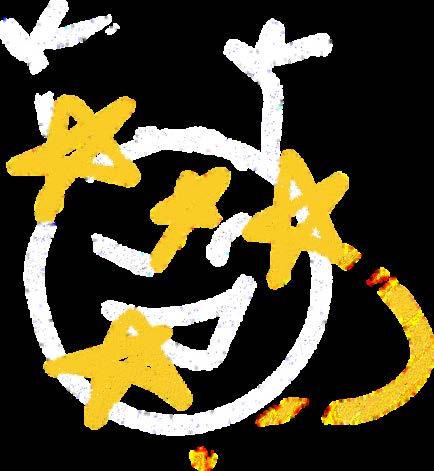
Race, Gender, and Feminist Philosophy (RGFP) – organized by Lila Graham and Margot Witte – hosted three graduate student workshops: one in October 2023 with AG McGee, presenting their project A Duty to Heed SelfDetermination Through Using Declared Pronouns; another in January 2024 with Paulina Ezquerra, on her project Cracking Open Portals to Pain; and the final workshop in April 2024 with Julian Rome, on his project Trans Utopianism.
Mind and Moral Psychology (MMP) – organized by Elizabeth Beckman, Paul de Font-Reaulx, and Aaron Glasser – invited Elisabeth Camp (Rutgers) to present “Stories and Selves: A Twisted Love Story about the Meaning of Life” for their annual colloquium in February 2024, co-sponsored with the AestheticsReadingGroup.InApril2024,TimSchroeder(Rice)gaveatalkfor MMPentitled“ReasonsfromAtoms”.
As in previous years, our students are continuing their work to share philosophywithnon-academicaudiences,bothinAnnArborandbeyond.
AG McGee taught pre-college philosophy at the Johns Hopkins Center for Talented Youth during summer 2024. Malte Hendrickx organized the second annual local fundraiser for Philosophers Against Malaria (part of the Against Malaria Foundation) which raised $30,000, equivalent to approximately 15,000 insecticide-treated antimalarial nets. Julian Rome organized a session of the American Association for Philosophy Teachers (AAPT) Teaching Hub – titled “Activism and the Philosophy Classroom” – at the Meeting of the American Philosophical Association (APA) Central Division, New Orleans LA, in February 2024.
As we reported last year, our eighth annual Michigan COMPASS workshop in October 2023, for students from underrepresented groups considering graduate school in Philosophy, was co-organized and facilitated by Julian Rome, Gabrielle Kerbel, Lindy Ortiz, and Valerie Trudel, with 14 of our grad students serving as mentors. Maegan Fairchild gave opening remarks, while Kristie Dotson, Ishani Maitra, and Laura Ruetsche joined a Q&A panel on applying to grad school. Flash talks were given by Abdul Ansari and Sophia Wushanley; and a panel on life as a graduate student in philosophy was crewed by Abdul Ansari, Mitch Barrington, Sophia Wushanley, and Glenn Zhou. Francisco Calderón Ossa, Gabrielle Kerbel, and Yixuan Wu facilitated three discussion sessions, and social activities included a game night, coffee with mentors, and a movie night. This year’s ninth annual Michigan COMPASS workshop, co-organized by Nina Brown, Lila Graham, AG McGee,and LindyOrtiz,willbeheldinOctober2024.
In February 2024, AG McGee, Lindy Ortiz, and Julian Rome organized our eleventh annual Michigan High School Ethics Bowl. This year, along with the organizers, our coaches included Nina Brown, Francisco Calderón Ossa, Paul de Font-Reaulx, Lila Graham, and Malte Hendrickx. In addition, Abdul Ansari, Kevin Craven (’23), Alice Kelley, GabrielleKerbel, MicaRapstine, AlisonWeinberger,and MargotWitte allservedasjudgesforpreliminaryrounds.
Finally, our students have earned an outstanding set of prizes, both hereatUMandelsewhere.
Abdul Ansari won the Philosophy department 2024 Faculty Prize for ExcellenceinTeaching.
Jason Byas was awarded two Philosophy department prizes: the Philosophy department 2024 Charles L. Stevenson Prize (for excellence in a dissertation dossier), and the Weinberg Summer Dissertation Prize, awarded to a graduate student who has shown distinctionduringtheirfirstfiveyearsofstudy.
Paul de Font-Reaulx won the Institute for Humane Studies Junior Fellowship, an invitation-only award which provides funds for summerresearch,alongwiththeIHSVisitingScholarAward.
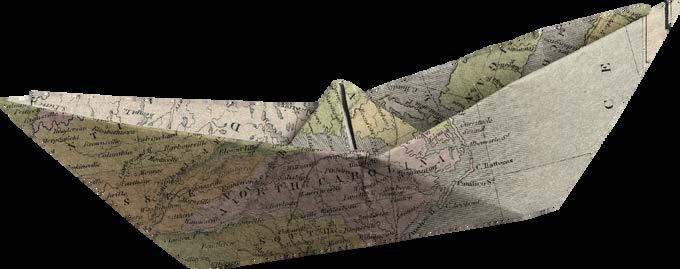
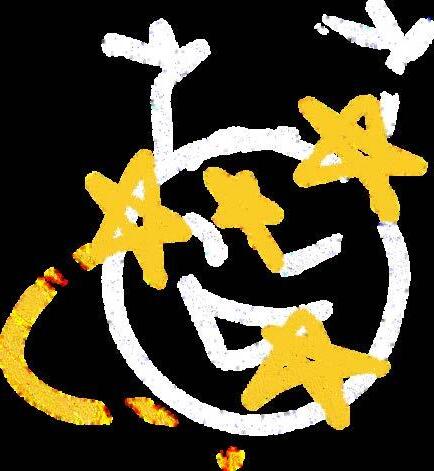
Our students' dedication to inclusivity and diversity in philosophy is evident in their involvement in initiatives that support underrepresented groups in the field. Sophia Wushanley continued as Co-Director of Minorities and Philosophy (MAP) International, organizing two events at the Meeting of the American Philosophical Association (APA) Central Division, New Orleans LA, in February 2024: a talk entitled “MAPping the Future: Reimagining the Status Quo in AcademicPhilosophy,”andaMAPpyHoursocialevent. Sophia Wushanley and Alison Weinberger co-organizedtheMichiganMinoritiesandPhilosophy(MAP) chapter, with events including the Martin Luther King Jr. Symposium (January 2024) with a talk by Lewis Gordon (University of Connecticut) titled “Dr. Martin LutherKing.Jr.fromaBlackExistentialPerspective”.
Gillian Gray was awarded two Philosophy department prizes: the 2024 John Dewey Prize for her outstanding teaching, and the 2024 Diversity,Equity,andInclusion(DEI)Prize.
Malte Hendrickx was awarded the 2024 Cornwell Fellowship Prize in recognition of his excellent (original and creative) philosophical work. Beyond Philosophy, Malte was awarded an International Institute Summer Fellowship. Beyond the University of Michigan, MaltewontheInstituteforHumaneStudiesSummerFellowship.
Gabrielle Kerbel was awarded a Philosophy department Weinberg SummerFellowship.




Lorenzo Manuali won the National Institute on Drug Abuse (NIDA) Neuroscience Training Program 2024-25 Grant (T32), in which students who conduct work about addiction and neuroscience are selected to takeclassesandworkwithmentorsontheirresearch.Heplanstousethis grant and the time away from teaching to work on project(s) relating to behavioraladdictioninthecomingyear.
Lindy Ortiz was awarded one of two Philosophy department 2024 Special Prizes for Leadership in Cocurricular Enrichment (SPLICE), which recognizesgraduatestudentswhohavemadeoutstandingcontributions to cocurricular efforts that benefit our department, our institution, our community,andourdiscipline.
Josh Petersen was named Kirkland Ellis Scholar at Stanford Law School, and he was also awarded the John Hart Ely Prize at Stanford Law School forhisresearchonenvironmentalracism.
Mica Rapstine was awarded the 2024 Cornwell Fellowship Prize in recognition of his excellent (original and creative) philosophical work. Beyond the University of Michigan, his paper "Political Rage and the ValueofValuing",therunner-upforthe2022RoyalInstituteofPhilosophy EssayPrize,waspublishedin Philosophy,asdetailedearlierinthisreport.
Adam Waggoner was awarded the Weinberg Summer Dissertation Prize, awarded to a graduate student who has shown distinction during theirfirstfiveyearsofstudy.
Margot Witte was awarded one of two Philosophy department 2024 Special Prizes for Leadership in Cocurricular Enrichment (SPLICE), which recognizesgraduatestudentswhohavemadeoutstandingcontributions to cocurricular efforts that benefit our department, our institution, our community, and our discipline. Beyond the University of Michigan, they won the 2024 Richard M. Griffith Award from the Southern Society for Philosophy and Psychology, which is "awarded each year for two papers of greatest excellence, one in philosophy and one in psychology." The winningpaperistitled,‘IsThisWhatIReallyWant?’:MurkyWantsandthe LimitsofConsent.
Yixuan Wu was awarded a 2023 Kan-Chuang International Student Fellowship from the University of Michigan, as well as a 2024 IRWG/RackhamCommunityofScholarsFellowship.
It's always exciting to see our graduate students being celebrated for their hard work and achievements. Their dedication, whether in advancing philosophical ideas, launching collaborative efforts, or gaining recognition both within and outside the department, sets the tone for a promising year ahead.
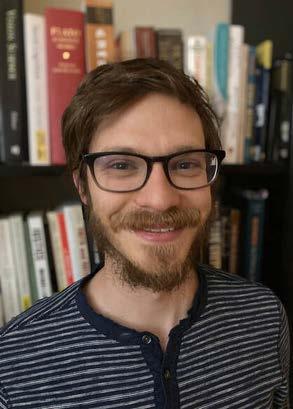
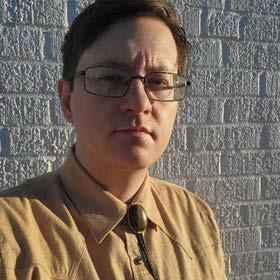
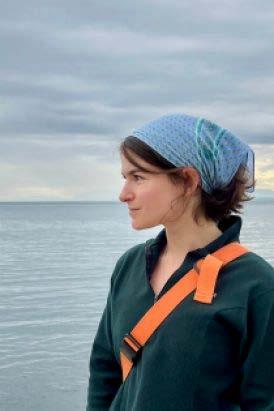
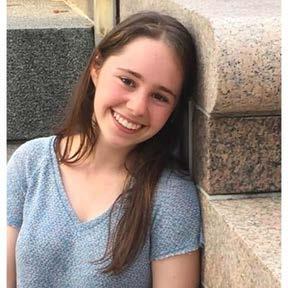
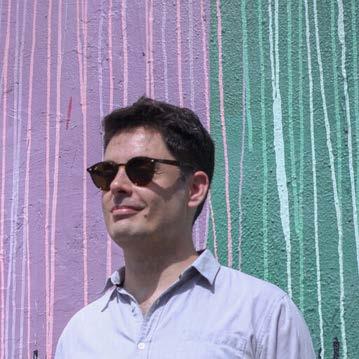
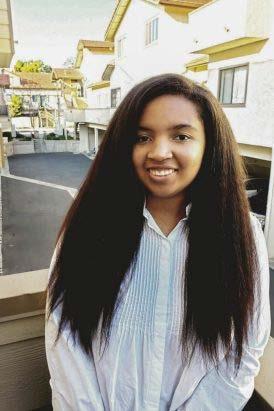
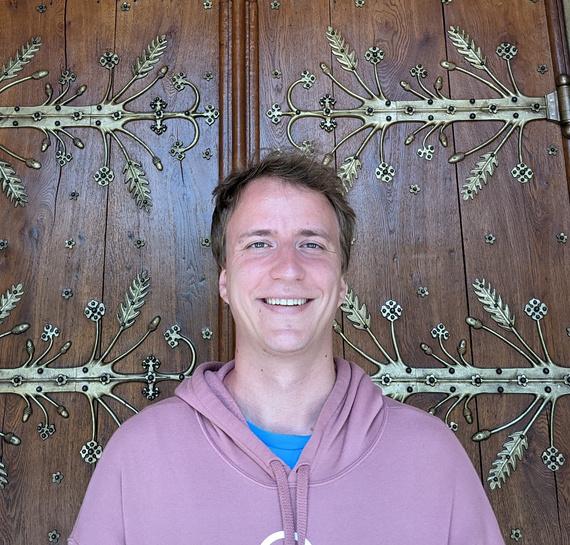


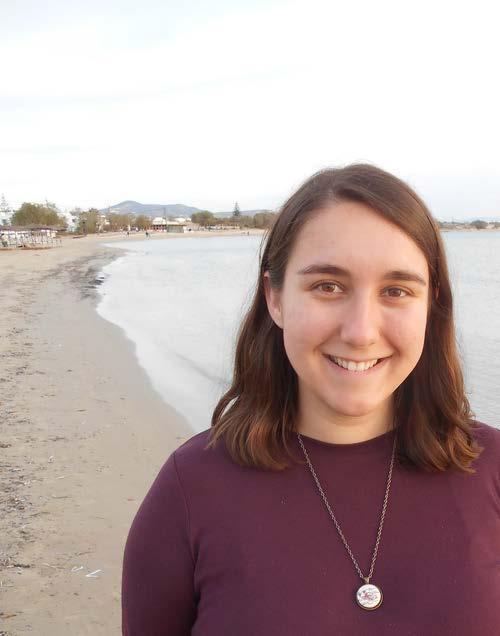

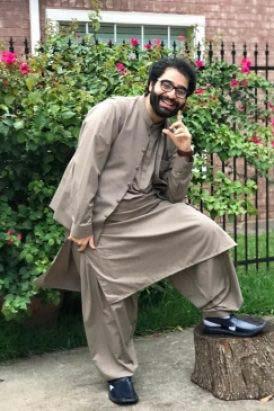






DJ Arends Jr. - I completed a B.A. in economics at the university of Michigan and an M.A. in philosophy at the university of Colorado. I am currently interested in the subject of counterfactual conditionals, and more broadly in topics pertaining to metaphysics and formal epistemology.
Shannon Chang - Before coming to Michigan, I studied microbiology and philosophy at UC Berkeley. Before that, I grew up in San Francisco, CA. I am primarily interested in ethics and science, both in first order inquiry within these domains and in the questions raised by them (metaethics, philosophy of science). Recently, I’ve been thinking about pragmatist conceptions of truth and objectivity, alternative normative concepts, the ethics of intimate relationships, and host-pathogen interactions. I enjoy spending time hiking, cross country skiing, doing gymnastics, playing various racket sports, swing dancing, making pen and ink illustrations, and listening to podcasts about esotericism, preferably while traveling and in the company of good friends.
KiKi Gilbert - I’m from Charlotte, North Carolina, and am interested in the intersection of the law, structural violence, and moral agency. I graduated in 2021 with a degree in African American Studies from Princeton University. Shortly after, I relocated to the UK as a Marshall Scholar, receiving back-toback post-graduate degrees from King's College, Cambridge, and the London School of Economics. While in the UK, I worked as a community organizer, received two poetry fellowships, and co-authored a textbook chapter on the political philosophies of Frederick Douglass.
Dennis Lee - Hello! My name is Dennis. I'm from Starkville, Mississippi and have just graduated from Yale College, where I studied philosophy alongside politics, economics, and mathematics. My primary philosophical interests are in ethics, political philosophy, and philosophy of law, and I have secondary philosophical interests in philosophy of action. I am pursuing my PhD in philosophy concurrently with a JD at Harvard Law School. I'm super excited to work with faculty in the philosophy department and elsewhere at Michigan!
Zuzanna Lutrzykowska - I'm Zuzanna, an MD-PhD student interested in ethics, particularly as it relates to the practice of medicine. Specifically, I'm intrigued by questions about autonomy, informed consent, biomedical enhancements, and identity. I'm originally from Shelby Township, Michigan and I completed my undergraduate degree here at the University of Michigan with majors in Philosophy and in Molecular, Cellular and Developmental Biology. It was important for me to pursue a PhD in Philosophy here at Michigan because of the excellent philosophy faculty who specialize in moral philosophy, as well as the opportunity to have a continued relationship with the medical environment and faculty during my philosophical research phase. A fun fact about me is that I love to ski!
Esther Ma - My main philosophical interests are in moral, political, and legal philosophy. Some of the projects I have worked on are about distributive justice, political authority, and the moral power of promising and consent. Before coming to Michigan, I completed a BA in philosophy at UCLA.
Nyla Welch - I was born and raised in Brooklyn NY before attending Washington University in St. Louis, from which I graduated in 2024. My research interests are in philosophy of mind and cognitive science. I am particularly interested in mental representations of aesthetic experiences and how these may inform theories of consciousness. Outside of philosophy I enjoy photography, video games, and cooking.
Christopher Yee - I'm originally from NYC. Right now my research interests are in epistemology and ethics but I'm open to and interested in every area of philosophy. On the side, I play classical piano and have recently picked up poker. One fun fact is that I can sometimes crack the knuckle in my right foot's big toe on repeat.
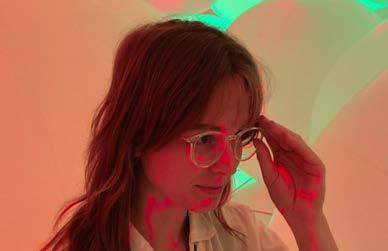

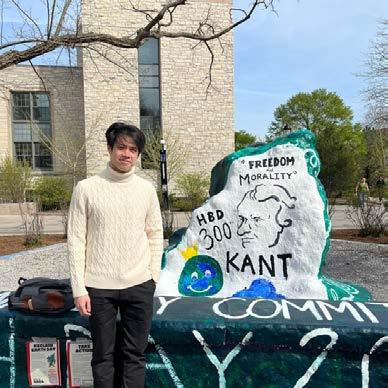

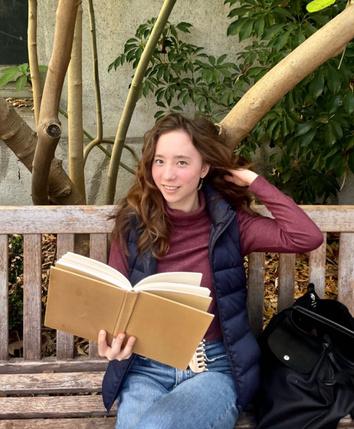
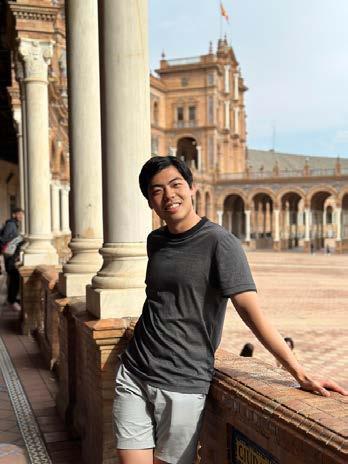






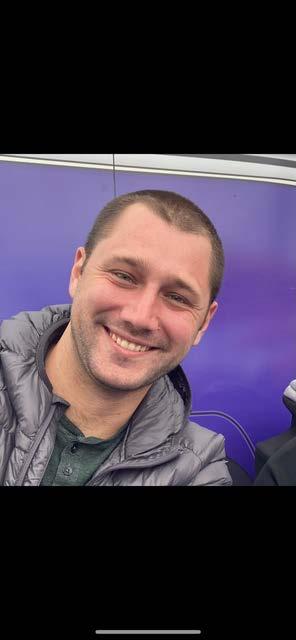

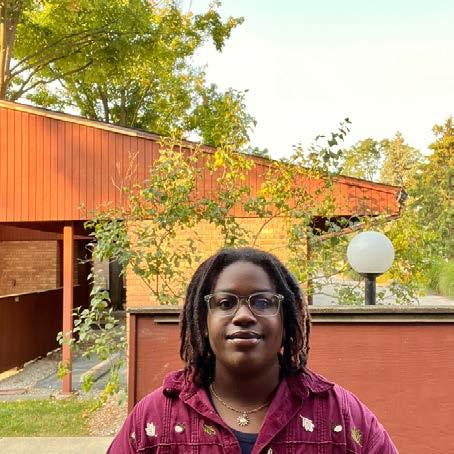

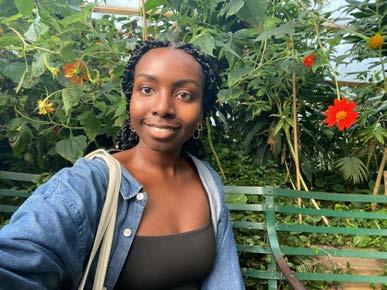

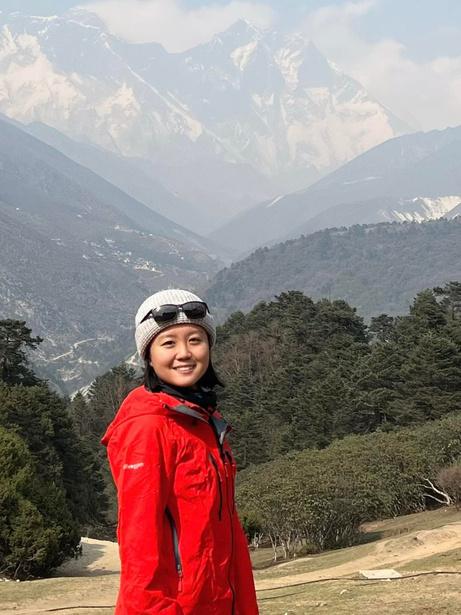


ABSTRACT:

AliceKelley Chair:SarahBuss
This dissertation explores grief, health, and medicalization, with a special focus on the interactions betweenthemedicalizationofgriefandtheroleofgriefinaflourishinglife.
Chapter1intervenesondebatesaboutthemedicalizationofgrief,focusingontherecentadditionofa grief-specificdisorder–ProlongedGriefDisorder(PGD)–totheDSM.Opponentsofmedicalizationhave beenprimarilyconcernedwithpotentialnegativeloopingeffects–waysthatclassificatoryprocesseslike medicalization(treatingsomethingasadisorder)contributetoharmfulsocialpracticesordistortionsof self-conception.Contrastingly,Icallattentiontounappreciatedbeneficialloopingeffectsthatmightbe achievedbymedicalizing(some)experiencesofgrief.Alongsidethis,Ihighlightthattheconcernsabout negative looping effects rest on the philosophically significant – and conceptually optional –assumptionsthatgriefisa“normal”partofthehumanexperience,andthat“normal”partsofhuman experienceshouldnotbemedicalized.Consequently,IarguethatratherthanremovingPGDfromthe DSM,thebetterpathforwardistohelpgrieversreconceivetheroleofdiagnosticcategoriesbymoving awayfromabackgroundunderstandingofhealthconditionsaspathologies.
Chapter2developsanaccountofhealthygriefasaconstructivedialecticalprocess–ratherthaneithera state or a healing process aimed at “recovery”. My account also sets itself apart from others in that it includesrespect(forwhatislost)asacentralcomponentofthedialecticsofgrieving.Thissetsthestage forapictureofgrievingonwhichgriefisapositivecomponentoflivingaflourishinglife:onmyaccount,it isnotaconditionofhealthygriefthatitdissipatesovertime-endlessgriefcanbebothappropriateand compatiblewithflourishing.Indepartingfromvariouswell-knownaccountsofgriefintheseways,the pictureofgriefthatIdevelopprovidesuswithresourcesforalleviatingpuzzlingapparenttensionsinour attitudestowardsgriefthatotheraccountscannotresolve.
Chapter3extendstheaccountofgriefdevelopedinthepreviouschaptertootherformsofloss,witha particularfocusonanticipatorygrief.Consideringmultipleformsoflosselucidatestwofurthernotable featuresofgrief(i)objectplenitude:ingrief,thereisneverjustoneobjectofloss;theobjectsstandin intimateandoverlappingrelationswitheachothersuchthattherearenotalwaysboundariesbetween themand(ii)objectgeneration:theprocessofgrievingpartiallydetermineswhichthingsareseenas losses.Subsequently,IshowhowthepictureofgriefthatIhavedevelopedshedslightonsomeofthe differentwayswecanbecome“stuck”inourexperiencesofgriefandIconsiderthepractical(clinical, social,andinterpersonal)upshotsofthis.
ABSTRACT:
KatieWong Chair:SarahBuss
This dissertation explores and defends the moral significance of love for other persons. In The Possibility of Altruism, Thomas Nagel (1970) suggests that the motivational foundation of morality depends on our recognition of the reality of other persons. Loving another person, I argue, commits us to the same kind of recognition: fully seeing that person’s—the beloved’s—independent reality. My account of this commitment challenges our tendency to think of love and morality as separate domains and shows that love is a promisingplacetolookfornovelanswerstoclassicethicalquestions.

ABSTRACT:
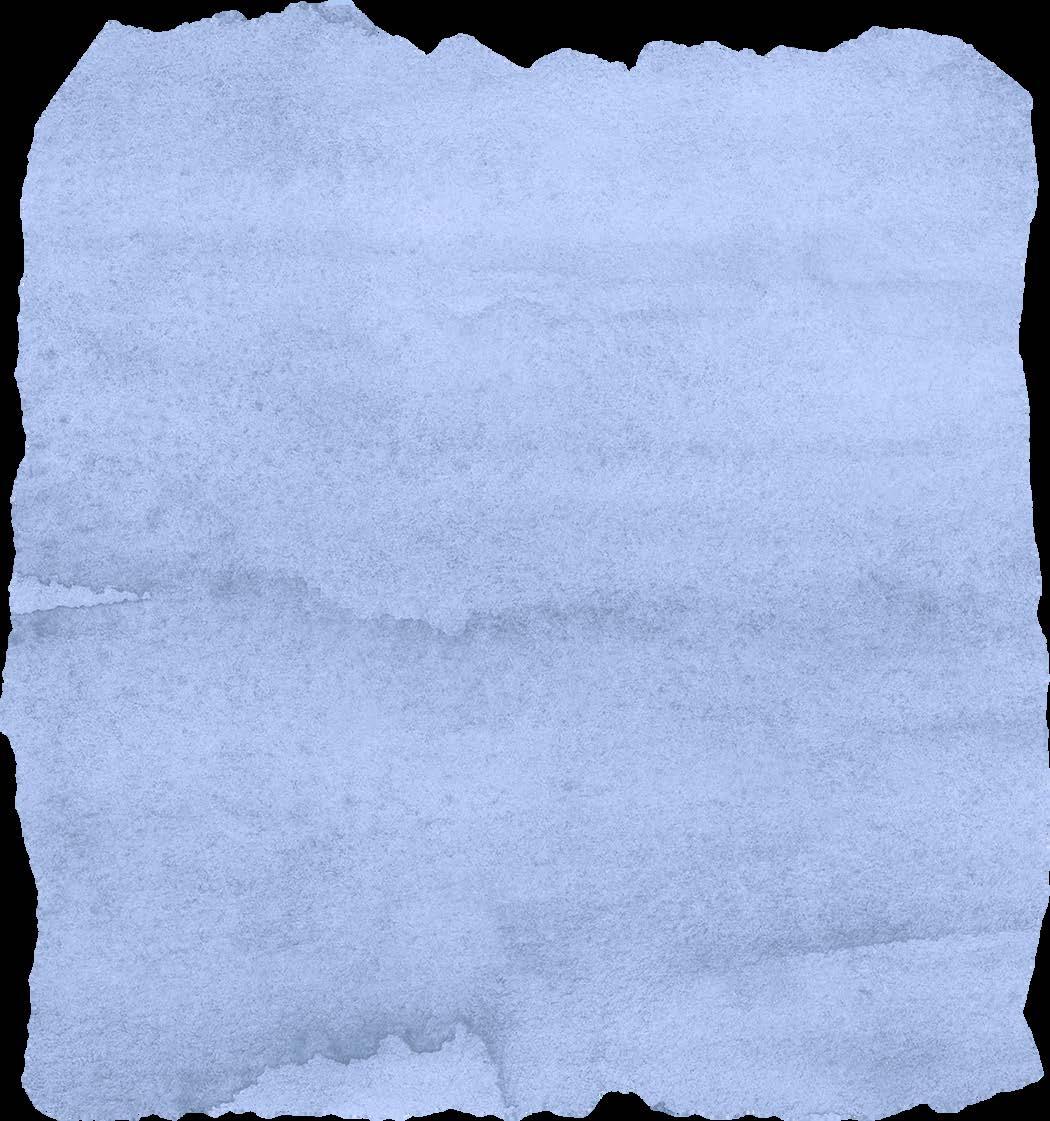
Lianghua'Glenn'Zhou
Chair:VictorCaston
This dissertation discusses two fundamental problems that threaten the foundations of Aristotle’s physics and psychology. The first is “the stopping and starting problem”, which raises a difficulty for his physics regarding the transition between motion and rest (in either direction). The second is “the contraries problem”, which concerns how we are able to discriminate different perceptible qualities without undergoing contrary changes at the same time. On my reading, both puzzles involve a boundary between two intervals – the first between motion and rest, and the second between different changes – where it is unclear which interval(s) the boundary belongs to. Scholars have long found it difficult to see how Aristotle solves these puzzles, as they have overlooked the background theories for his solutions. To make progress, the first chapter of this dissertation reconstructs Aristotle’s theory of the boundaries of processes, according to which processes, due partly to their dynamic structure, exclude ends and include beginnings. The second and third chapters discuss how exactly he frames and solves these puzzles mainly by applying this theory. Additionally, the second chapter shows further that a parallel theory on the boundaries of states of restisimportantforsolvingthestoppingandstartingproblem.
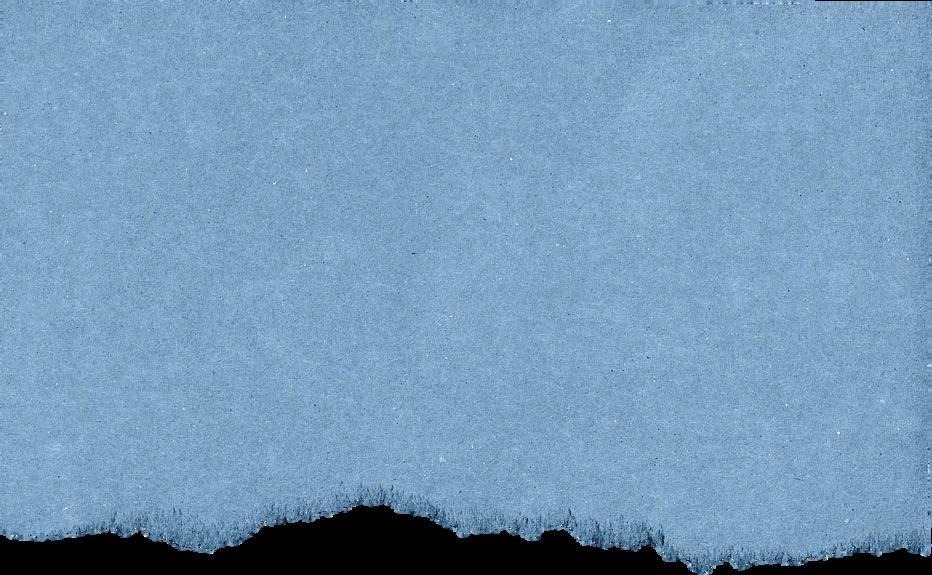
ABSTRACT:
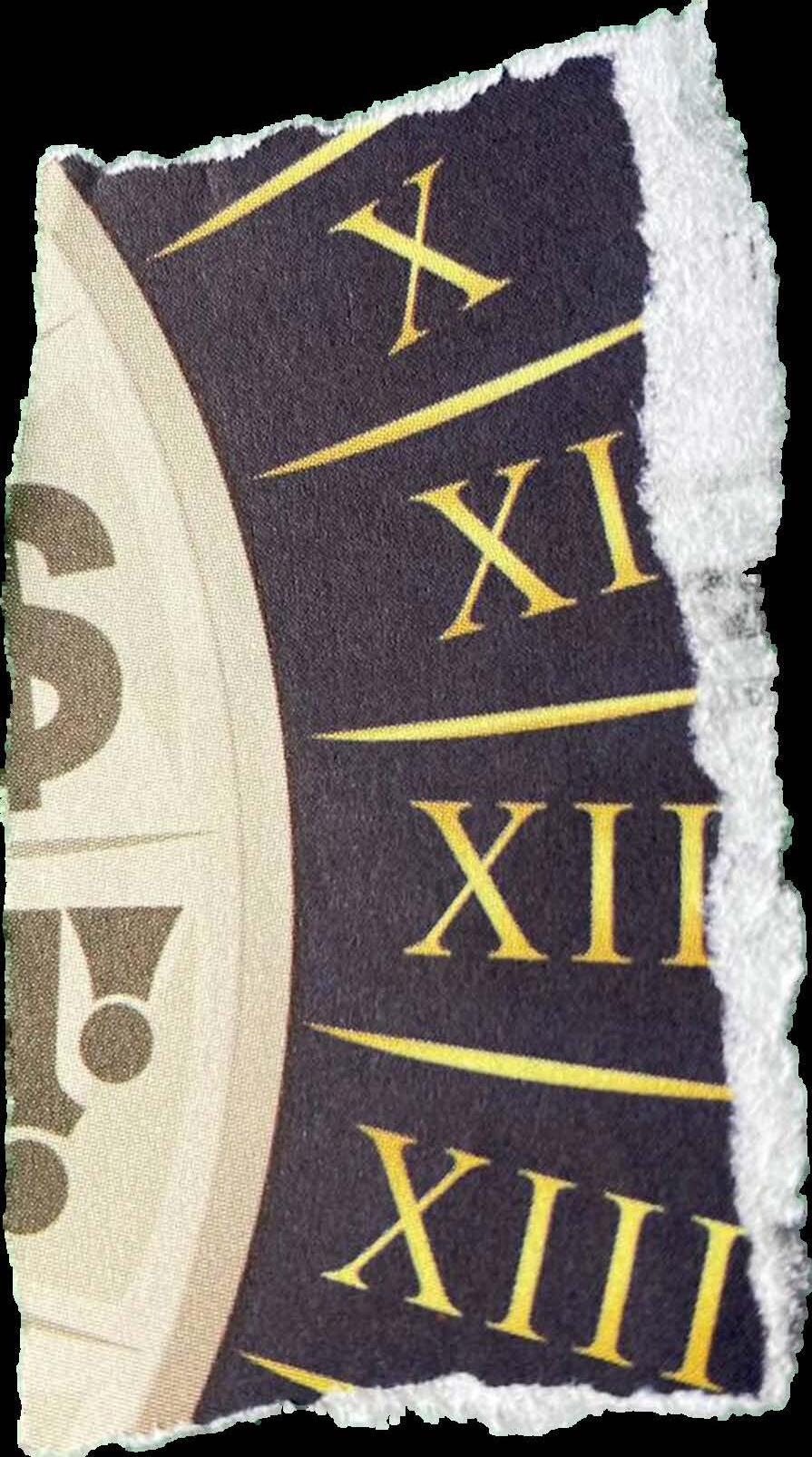
ArianaPeruzzi
Chairs:LizAndersonandIshaniMaitra
This dissertation explores questions of migration justice that intersect with issues in political philosophy.Onethingthatunitestheessaysincludedhereisafocusontheory-to-worldfit.Iaimto theorize migration in all its messy complexity. To do so, I draw on the work of social scientists, especially anthropologists, sociologists, and economists. I also take a migrant-first approach, centering migrant testimony and ethnographic accounts of migration practices. My goal is to produce theory grounded in the material lives of migrants, to arrive at more nuanced models of migrationpractice,andtheinstitutionsthatgovernmigration.Threeessaysinthisresearchprogram makeupmydissertation:
Chapter 1, What is Valuable about Migration? This paper presents an account of what is characteristically valuable about economic migration. I argue that the value of migration is in its capacitytobeagency-enhancinginrespecttothematerialenvironmentforbothcommunitiesand individualmigrants.
Chapter2,WhenWeDecide:PluralAgency,Voluntariness,andMigrantChoice:Thisessaydevelops anaccountofwhenmigrationisvoluntary.Ipointoutthatthedecisiontomigrateisoftenmadeby groups,notindividuals,andarguethatthesegroupsareoftenbestunderstoodaspluralagents.I offeradefinitionofvoluntarinessinmigrationapttocasesofsingularandpluralagency.
Chapter3,PersecutionintheContextofAsylum:BeyondStateViolence:Thisessayreconstructsthe conceptofpersecutioninthecontextofasylum.Receivedaccountsofpersecutioninthecontextof asylum define it as demonstrative of a state failure. I argue that these accounts rest on misconceptionsaboutthestate,andthattheyintroduceforeignpolicyconsiderationsthattendto bias asylum rulings. I contend that persecution in the context of asylum is better understood as seriousstatus-basedharm.




CameronMcCulloch
Chairs:LizAndersonandSarahBuss
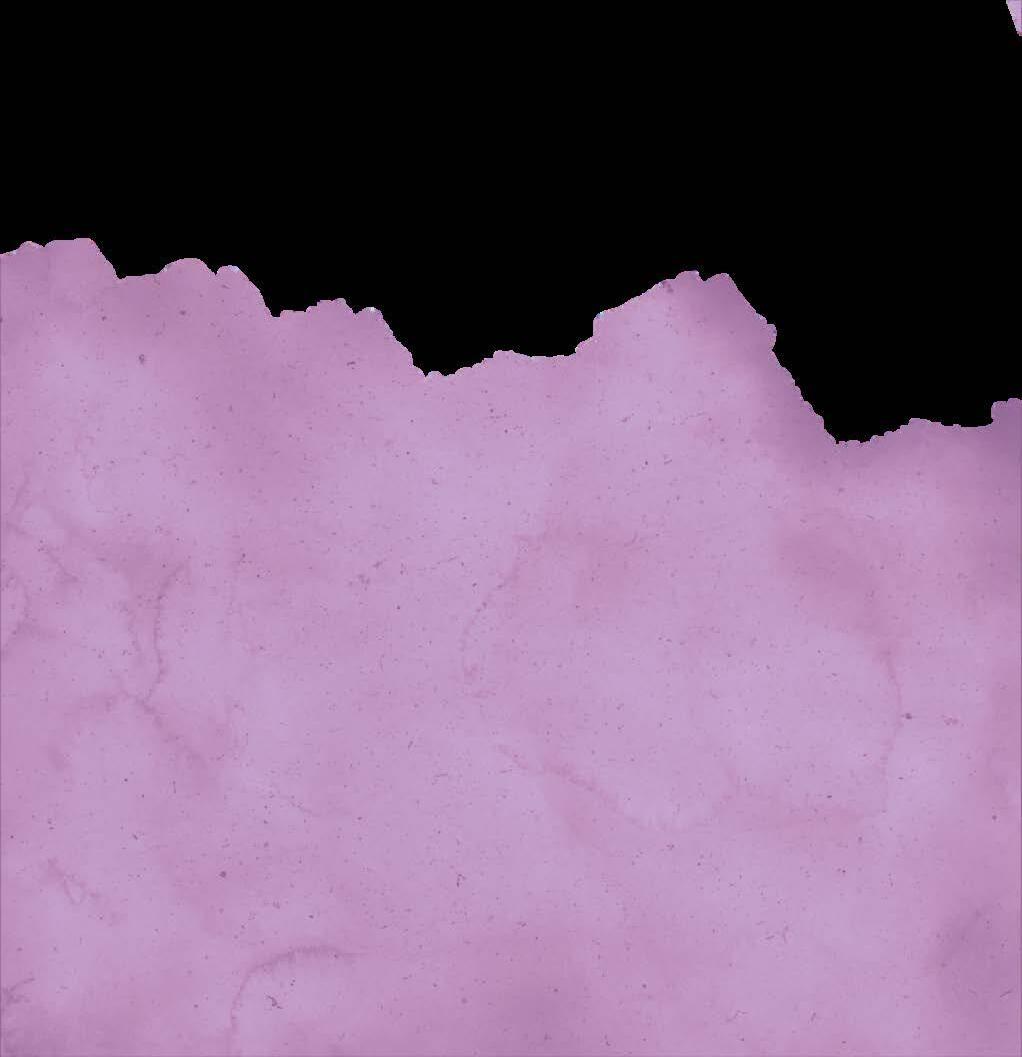
ABSTRACT:
This dissertation is about the relationship between privacy and property. Or rather, it addresses three specific questions,eachofwhichacompletetheoryoftherelationshipmustaddress.Theanimatingconvictionthatdrives thisdissertationisthatprivacyandpropertyaremoretightly,andmoretotally,relatedthanhasbeenappreciated. Thisthreequestionsaddressedinthesubsequentchaptersare:
1. Chapter 1: Does privacy have multiple irreducibly distinct “modalities” (e.g., physical/local, decisional, informational,etc.)?
2.Chapter2:Areprivacyrightsjustaspeciesofpropertyrights?
3.Chapter3:Can“simplyknowing”informationaboutsomeoneviolatetheirprivacyrights,irrespectiveofhowthe knowledgewasacquired?
My answers to these questions are roughly, and in order: “No,” “Yes,” and “Maybe.” The answers I give to the questionsdonotevenapproachacompletetheoryoftherelationshipbetweenprivacyandproperty.Butthey suggestamorecompleteandcomprehensiveviewoftherelationship.Theemergentviewconsistsoftwocore claims. First: all privacy concerns are fundamentally concerns about information. Apparently non-informational privacy concerns are either informational concerns in disguise, else dubious as privacy concerns. Second: the concerns “about information” that are at the bottom of all privacy concerns are concerns about who has the authoritytodeterminehowinformationflows—whoitisavailabletoandknownby;howitissharedandused.And the nature of this authority interest in information is propertarian. That is to say, privacy interests are property interestsininformation.
Chair:JimJoyce
ABSTRACT:
This dissertation is about the role that conditionals play in uncertain reasoning and deliberation. In particular, my goal is to show that, by adopting a specific semantics for conditionals—a contextualist, sequence semantics, which has recently become popular in the literature—a number of open problems in decision theory and epistemology can be resolved. The first chapter discusses a striking problem faced by causal decision theorists, about how to reason when we believe our actions are pre-determined by the past and the laws of nature. The second chapter discusses the well-known Desire-as-Belief thesis, which David Lewis argued was incompatible with decision theory. And the final chapter deals with a problem initially posed by Van Fraassen—the Judy Benjamin problem—about how we should change our credences when we learn a piece of conditional information. In each case, I show that the sequence semantics helps us make headway on the issues. Indeed, I believetheseissuescanbeovercomeifconditionalshavethissemantics.
CalumMcNamara willbetakingupapostdocatYaleinthefall,beforestartingasanassistantprofessorat Indianainfall2025.
Ariana Peruzzi will be taking up a postdoc in the Law & Philosophy Program at UCLA in the fall, and startingasanassistantprofessoratSouthernMethodistUniversity(SMU)in2026.
Alejo Stark (MA Philosophy 2020) will be starting as an assistant professor in World Languages & CulturesattheUniversityofUtahinthefall.
KatieWongwillbetakingupapostdocintheUCLAHealthEthicsCenterinthefall.
Lianghua(Glenn)Zhou willbestartingasanassistantprofessoratTexasA&Minthefall.
Alice Kelley will be taking up a postdoc at the Baylor College of Medicine Center for Medical Ethics and HealthPolicyinthefall.




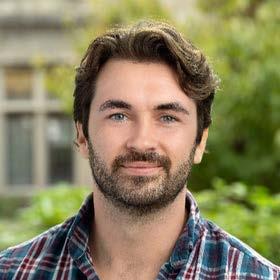



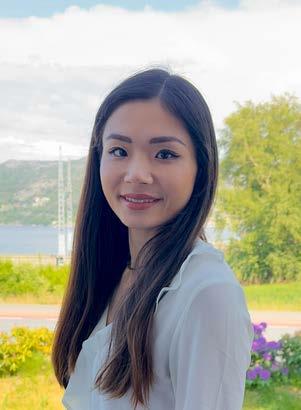
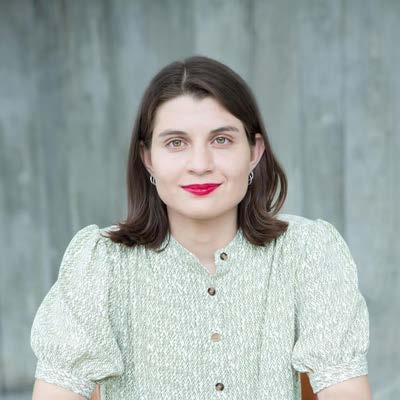
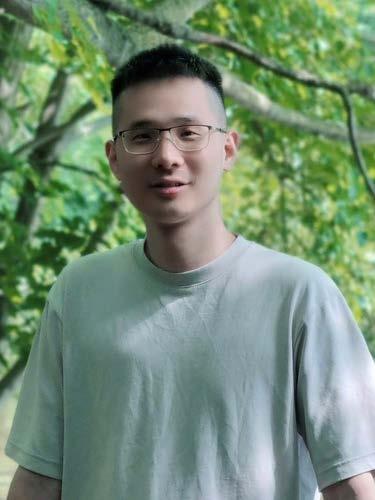
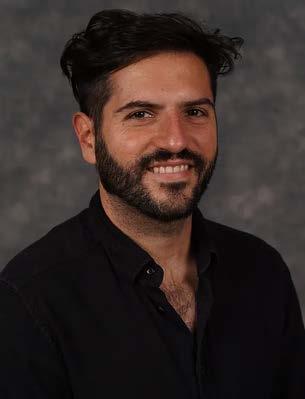

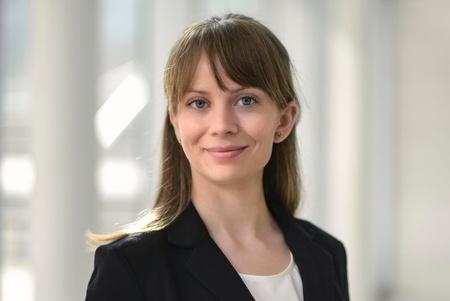



Three Philosophy faculty gave their inaugural Collegiate Professor lectures on December 5, 2023:
"On the Road to Truth"
- GordonBelot, Lawrence Sklar Collegiate Professor of Philosophy
"Decision Making and the Accuracy of Beliefs"
- JamesM.Joyce, Cooper Harold Langford Collegiate Professor of Philosophy
"The Physics of Ignorance: Believe It or Not?
- LauraRuetsche, Louis E. Loeb Collegiate Professor of Philosophy

James Joyce — Cooper Harold Langford Collegiate Professor of Philosophy, and professor of philosophy and of statistics in LSA — has been elected a fellow of the American Academy of Arts & Sciences (AAAS). He has research interests in rational choice theory, causal reasoning, Bayesian approaches to statistics and inductive inference, the use of “imprecise” probabilities to model belief states, and general philosophy of science.
Laura Ruetsche — Louis Loeb Collegiate Professor of Philosophy and Professor of Philosophy — was named by the American Association for the Advancement of Science as 2023 fellow for extraordinary achievement for work on the foundations of physical theories, particularly quantum theories. She is also interested in the question of what gender might have to do with the epistemic dimension of scientific inquiry.
KyleWhyte — University Diversity and Social Transformation Professor; George Willis Pack Professor, professor of environment and sustainability, and faculty director of the Tishman Center for Social Justice and the Environment in the School for Environment and Sustainability; and professor of philosophy in LSA — was appointed by the Michigan Society of Fellows as a senior fellow. His research addresses environmental justice, focusing on moral and political issues concerning climate policy and Indigenous peoples, the ethics of cooperative relationships between Indigenous peoples and science organizations, and problems of Indigenous justice in public and academic discussions of food sovereignty, environmental justice, and the anthropocene. He is an enrolled member of the Citizen Potawatomi Nation.
Sarah Buss — Professor of Philosophy — has been appointed as the James B. and Grace J. Nelson Professor of Philosophy. Professor Buss is interested in issues at the intersection of metaphysics and ethics. She is the author of articles on autonomy, moral responsibility, practical rationality, and respect for persons. In her work, she has developed accounts of weakness of will, our moral obligations to the needy, the rationality of our concern for our own happiness, the relationship between intentional action and evaluative commitments, the relevance of childhood deprivation to assignments of blame, the moral importance of etiquette, and the metaphysical significance of illness.

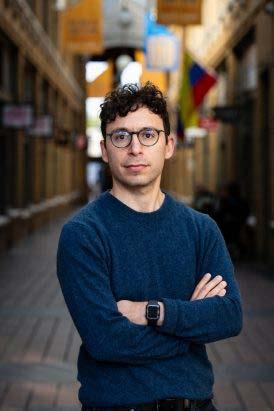



Gabriel Shapiro specializes in ancient Greek and Roman philosophy. His recent work focuses on ancient Greek metaphysics, especially ontology, essentialism and thePrincipleofNon-Contradiction.Heiscurrentlyworkingon projects concerning Aristotle's argument that it is impossible to believe a contradiction, the ontology ofinPlato'sRepublicandaforgottenargumentforessentialism Aristotle. His interests also include ancient Greek epistemology and ethics, contemporary metaphysics and the reception of Aristotelianism in medieval Arabic and Hebrewphilosophy.
Gabriel received his PhD from Princeton University in 2022 for a dissertation on essentialism in Plato andAristotle,andhespent2022–24atNYUasaBersoffFaculty inFellow.HisworkhasappearedinPhronesis,OxfordStudies PhilosophyAncientPhilosophy,andtheJournaloftheHIstoryof (forthcoming).






ElizabethAnderson — John Dewey Distinguished University Professor of Philosophy and Women’s Studies, Arthur F. Thurnau Professor, Max Shaye Professor of Public Philosophy, Politics, and Economics, Professor of Philosophy and Women’s and Gender Studies, College of Literature, Science, and the Arts; Moral and Political Philosophy, Epistemology, Feminist Theory, Philosophy of Social Science
DavidBaker — Professor and James B. and Grace J. Nelson Fellow; Philosophy of Physics, Philosophy of Science
GordonBelot— Lawrence Sklar Collegiate Professor of Philosophy and James B. and Grace J. Nelson Fellow; Philosophy of Physics, Philosophy of Science
SarahBuss — Professor and James B. and Grace J. Nelson Professor of Philosophy; Ethics, Action Theory, Moral Psychology
VictorCaston — Professor and James B. and Grace J. Nelson Fellow; Ancient Philosophy, Medieval Philosophy, Austrian Philosophy, Philosophy of Mind, Metaphysics
EmmalonDavis — Assistant Professor and Denise Fellow; Ethics, Social and Political Philosophy, Epistemology
KristieDotson — Professor of Philosophy; Professor, Department of Afroamerican and African Studies; University Diversity and Social Transformation Professor; Epistemology, Metaphilosophy, Feminist Philosophy
AnnaEdmonds — LEO Lecturer II; Ethics, Epistemology, Philosophy of Mind
MaeganFairchild — Assistant Professor and Denise Fellow; Metaphysics, Philosophical Logic, Epistemology, Aesthetics
DanielHerwitz — Frederick G. L. Huetwell Professor; Aesthetics, Film, Philosophical Essay, Transitional Societies
RenéeJorgensen — Assistant Professor and Denise Fellow; Social and Political Philosophy, Philosophy of Language, Ethics, Epistemology, Philosophy of Law
DanielLowe — LEO Lecturer II; Moral and Political Philosophy, Feminist Philosophy, Moral Epistemology
IshaniMaitra — Professor and James B. and Grace J. Nelson Fellow; Philosophy of Language, Feminist Philosophy, Philosophy of Law
DavidManley — Associate Professor and James B. and Grace J. Nelson Fellow; Metaphysics, Philosophy of Language, Epistemology
SarahMoss — William Wilhartz Professor of Philosophy and James B. and Grace J. Nelson Fellow; Philosophy of Language, Metaphysics, Epistemology
SonyaÖzbey — Assistant Professor and Denise Fellow; Chinese Philosophy
PeterRailton — Gregory S. Kavka Distinguished University Professor; John Stephenson Perrin Professor; Arthur F. Thurnau Professor, James B. and Grace J. Nelson Fellow; Ethics, Philosophy of Science, Political Philosophy, Moral Psychology, Aesthetics
LauraRuetsche — Department Chair and Professor, Louis Loeb Collegiate Professor and James B. and Grace J. Nelson Fellow; Philosophy of Physics, Philosophy of Science
TadSchmaltz — Professor and James B. and Grace J. Nelson Fellow; History of Early Modern, History and Philosophy of Science
JanumSethi — Associate Professor and James B. and Grace J. Nelson Fellow; Kant, History of Modern Philosophy, Aesthetics
GabrielShapiro — Assistant Professor and Denise Fellow; Ancient Greek and Roman philosophy
ChandraSripada — Professor and James B. and Grace J. Nelson Fellow; Ethics, Moral Psychology, Mind, Cognitive Science
EricSwanson— Professor and James B. and Grace J. Nelson Fellow; Philosophy of Language, Philosophy of Mind, Metaphysics, Formal Epistemology
JamesTappenden — Professor and James B. and Grace J. Nelson Fellow; Philosophy of Language, Philosophy and History of Mathematics, Philosophical Logic
NicolasCornell — Professor of Law, UM Law School; Professor of Philosophy, LSA
DanielFryer — Assistant Professor of Law, UM Law School; Assistant Professor of Philosophy, LSA


ScottHershovitz — Thomas G and Mabel Long Professor of Law, Professor of Law, Law School; Professor of Philosophy, LSA Ezra KeshetAssociate Professor of Philosophy; Associate Professor of Linguistics
MikaLaVaque-Manty — Arthur F. Thurnau Professor, Associate Professor of Political Science; Associate Professor of Philosophy, LSA
GabeMendlow — William W. Bishop Jr. Collegiate Professor, Professor of Law, UM Law School; Professor of Philosophy, LSA
WillThomas— Assistant Professor of Business Law, Ross School of Business; Assistant Professor of Philosophy, LSA
KyleWhyte — George Willis Pack Professor of Environment and Sustainability; Professor of Philosophy, LSA
EkowYankah — Thomas M. Cooley Professor of Law, UM Law School; Professor of Philosophy, LSA
EMERITUSFACULTY
Edwin Curley
Stephen Darwall
Allan Gibbard
Louis Loeb
Donald Regan
Lawrence Sklar
Richmond Thomason
Kendall Walton
Nicholas White

JamesJoyce — Cooper Harold Langford Collegiate Professor; Decision Theory, Epistemology, Philosophy of Science
EricLormand — Associate Professor and James B. and Grace J. Nelson Fellow; Philosophy of Mind, Philosophy of Cognitive Science, Language

BrianWeatherson— Marshall M. Weinberg Professor, James B. and Grace J. Nelson Fellow; Epistemology, Philosophy of Language
BY:TADSCHMALTZ

Over the years my research has been devoted primarily to topics in early modern (i.e., seventeenth- and eighteenth-century) philosophy, with special focus on issues from the work of canonical figures such as René Descartes (1596-1650), Baruch Spinoza (1632-1677) and Nicolas Malebranche (1638-1715).
However, I have had a continuing interest in the impact of scholastic thought on early modern philosophy, particularly with respect to the views of the Spanish Jesuit theologian and philosopher, Francisco Suárez (1548-1617), pictured above. During an upcoming research leave, I plan to start on a new project, Suárez’s Metaphysics: Medieval and Modern Themes, which will involve a consideration of Suárez’s seminal text, Metaphysical Disputations (Disputationes metaphysicae; 1597). The influence of this text is reflected in the judgment in the seventeenth century that Suárez is “the prince and pope of all metaphysicians” (from the 1680 Meletemata philosophica of the Dutch philosopher Adriaan Heereboord). Suárez’s Disputations in fact provided a model for textbooks in early modern universities in Western Europe, both Catholic and (as in the case of Heereboord’s Leiden University) Protestant. There is a sense in which Suárez’s metaphysics was the received view in academic circles during this time.
I have cited MacIntyre’s claim that Suárez is “perhaps more authentically than Descartes the founder of modern philosophy.” MacIntyre emphasizes that for Suárez, “the notion of working within a tradition had clear relevance in theology, but not in what he took to be the timeless studies of the philosopher” (ThreeRivalVersions, p. 73). The contrast here—as in the case of Gilson (see below)—is with Thomas Aquinas. In MacIntyre’s case, Aquinas is a paradigmatic example of someone who is concerned to correct, modify and integrate the views of “a variety of writers within the Augustinian and Aristotelian traditions, now understood as contributing to a single ongoing enterprise of inquiry” (p. 74). According to MacIntyre, then, we have the replacement of a Thomistic emphasis on “tradition-constituted inquiry” with Suárez’s more Enlightenment conception of philosophy as founded on ahistorical pure reason.

Nevertheless, there is an Enlightenment narrative that brings into question the philosophical significance of Suárez’s metaphysics. According to this narrative, medieval scholasticism was a hidebound system beholden to the authority of Aristotle that was fortuitously overthrown by “new philosophers” of the early modern period who relied on reason and experience rather than authority in philosophical matters. It is clear from his Disputations that Suárez understood himself to be part of a medieval scholastic tradition that includes figures such as Thomas Aquinas (1225-1274) and John Duns Scotus (1265-66-1308), and that takes the views of Aristotle as the starting point for philosophical investigation. The Enlightenment narrative encourages the view of Suárez’s metaphysics as a relatively minor contribution to what was after all an intellectually bankrupt movement.
Contrasting with this perspective is a more recent view of Suárez’s metaphysics as paradigmatically modern. Such a view is reflected, for instance, in the claim of Alastair MacIntyre that “Suárez, both in his preoccupations and his method, was already a distinctively modern thinker, perhaps more authentically than Descartes the founder of modern philosophy” (Three Rival Versions of Moral Enquiry, p. 73). For MacIntyre—a well-known critic of modernity as conceived in the Enlightenment—this is hardly a compliment. Nor is MacIntyre alone in having a critical view of the purportedly modern aspects of Suárez metaphysical thought. So also, there is the complaint—deriving from the work of the historian of philosophy Étienne Gilson—that Suárez anticipates a modern conception of metaphysics according to which it is focused only on abstract conceptual structures of thought, thereby losing contact with real, extramental existence.
So was Suárez merely a creature of medieval scholasticism or rather a proponent of a modern—and from a “postmodern” perspective, especially problematic—outlook? In pursuing my new project, I will be concerned to locate Suárez’s metaphysics with respect both to its medieval past and to a still-to-berealized modernity. However, I will be concerned as well to provide a more positive alternative to the competing negative characterizations of him as scholastic epigone and reckless modernist. As I see it, the early modern claim that he is “prince and pope” of metaphysicians correctly highlights the fact that he made a particularly sophisticated and original use of the metaphysical resources available to him. Even his difficulties and failures in metaphysics—and there are some—prove to be instructive.
In what follows, I indicate some of the topics concerning Suárez’s metaphysics that I hope to discuss in more depth in future publications and ultimately in my forthcoming book, Suárez’sMetaphysics.
In fact, Suárez himself offered a metaphysics that is solidly within the Jesuit tradition. Whereas the general label of ‘scholasticism’ suggests a unified system, scholasticism itself was hardly monolithic. In post-medieval scholasticism, this is illustrated by a controversy that flared up toward the end of the sixteenth century, which pitted Jesuits against members of the Dominican order on issues concerning human freedom, grace and predestination, and which nearly created a schism in the Catholic Church (I discuss this controversy, and Suárez’s contribution to it, in my forthcoming “Suárez’s Congruism”). To be sure, the conflict here was primarily theological, but different religious orders also tended to have different approaches to philosophical issues. Thus, for instance, Dominicans particularly prized fidelity to the views of fellow Dominican Thomas Aquinas, whereas members of the Franciscan order tended to be sympathetic to deviations from orthodox Thomism present in the work of fellow Franciscan Duns Scotus.
In his Disputations, Suárez is often concerned to offer a middle way between Thomistic and Scotistic perspectives on metaphysical issues, one which takes into account as well “nominalist” critiques of both sides. This approach reflects not some idiosyncratic tendency on the part of Suárez toward eclecticism, but rather an emphasis in founding documents from the Society of Jesus (established in 1540) on reconciling as far as possible opposing philosophical positions that are in agreement with basic teachings of the Church. Suárez is also in line with Jesuit methodology in showing great respect for the philosophical views of Aquinas, but also in being open to corrections especially of later Thomistic interpretations of these views that draw on alternative scholastic perspectives. What we find in the Disputations is hardly a “modern” attempt—à la Descartes—to discard old opinions and re-build new metaphysical foundations from scratch. For better or worse, Suárez’s approach is rather close to the one MacIntyre finds in Aquinas, namely, to start from but also to correct and modify views found in the tradition of Christianized Aristotelianism.
In his Disputations, Suárez argues that the principal object of the science of metaphysics is “being insofar as it is real being” (ens in quantum ens reale). I have mentioned Gilson’s critique of Suárez, which raises the question of whether Suárez offers an “essentialist” account of “real being.” In his classic study, Being and Some Philosophers, Gilson argues that Scotus, and even more clearly Suárez, deviated from the position in Aquinas that the act of actually existing (esse) provides the focal point for metaphysics. Gilson traces back to the medieval Islamic philosopher Avicenna (Ibn Sina, ca. 980-1037) a competing view that “purified metaphysics of the slightest trace of existence” by taking it to concern essence (essentia) identified with merely possible existence. This new conception of metaphysics “begot Scotus, who begot Suárez,” who in turn begot the modern metaphysical tradition (Being and Some Philosophers, p. 106). This narrative has been highly influential, particularly in “Continental” circles. It is reflected, for instance, in the claim of the Heidegger scholar Jean-François Courtine that the object of Suárez’s metaphysics “requires no reference—even implicit—to the sphere of existence” (Suárez et le système de la métaphysique, p. 287). Courtine takes this view in Suárez to lead directly to the Schulphilosophie dominant in the eighteenth century.
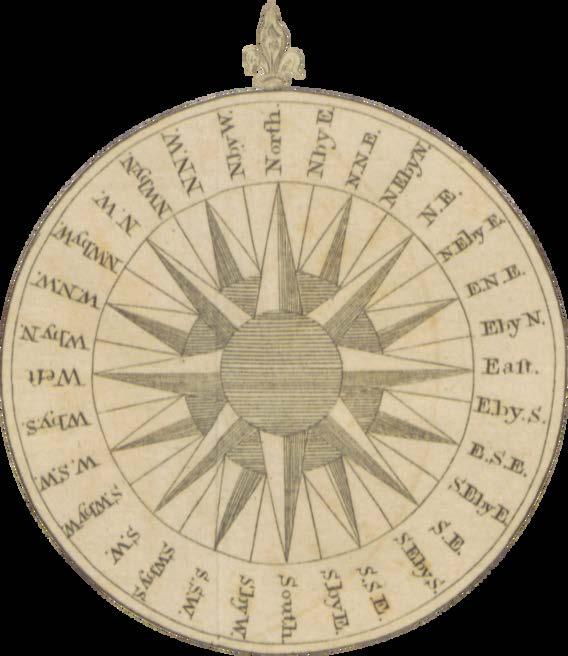



BY:TADSCHMALTZ

This reading of Suárez has some basis particularly in the initial sections of the Disputations, which include the claim that the “real being” that serves as the focal point of metaphysics is to be conceived in complete abstraction from actual existence. However, I would argue that Suárez’s subsequent discussion in his text indicates that his initial abstract understanding of real being does not preclude the view that such being is founded ultimately on the actual existence of individual and singular things (res). There are two relevant points here. The first is that Suárez indicates in later portions of the Disputations that the object of this initial consideration is something that is distinct only “in reason” through “inadequate concepts” from actually existing individualized essences: this is what I have called Suárez’s “nominalism.” The second point concerns the indication in Suárez that the “potential being” that he initially includes in the object of metaphysics must itself be founded ultimately in some actually existing being: this is what I (following others) have called—provocatively—Suárez’s “existentialism.” The conclusion I would want to draw is that Suárez’s acceptance of distinctive forms of nominalism and existentialism is out of line with the sort of essentialist understanding of his metaphysics that we find in Gilson and other commentators.
ResandModus:ChallengesforSuárez’sMetaphysics
Western philosophy inherited from Aristotle’s Categories a basic metaphysical distinction between substances, which are not “in” any other subject, and their accidents, which are “in” substances as their subject. One of Suárez’s great innovations in the Disputations was to complicate this distinction by introducing a further distinction between a “thing” (res/pl. res) and its “mode” (modus/pl. modi). Though there is some talk of modes in earlier scholastic writings, Suárez’s conception of them is novel and provides a basis for developments of a substance-mode ontology of the material world in subsequent early modern thought (as I have argued in my MetaphysicsoftheMaterialWorld).
According to Suárez, certain Aristotelian accidents are res, albeit accidental res distinct in nature from substantial res. Thus, he holds that whereas quantity and certain sensible qualities, such as colors, differ from substances in virtue of the fact that only the former have an essential “aptitude,” or tendency, to inhere in a substance, they nonetheless count as res insofar as they can exist on their own, at least by means of God’s absolute power. Even so, Suárez insists that there are in addition various modi of accidental and substantial res, which are distinctive in virtue of the fact that they are wholly incapable of existing apart from the res they modify, even by means of God’s absolute power, and so cannot themselves be res. A typical example here is shape, which relies essentially on the accidental res of quantity it modifies, and thus is itself a modus rather than ares.
There is the suggestion in the work of Descartes and other early modern critics of scholasticism that the notion of accidental res, or “real quality,” is obscure and in need of replacement by the much clearer notion of modus. However, I would want to recover from Suárez a sense in which it is the notion of accidental res that is settled and the notion of modus that is problematic. The argument is that there are in fact two elements of the metaphysics of the Disputations that introduce challenges for Suárez’s appeal to modi that are distinct in reality from the res they modify. The first such element involves his position, contrary to a common scholastic view, that res cannot be among the properties of being (ens) since the terms for the two are entirely synonymous. The difficulty here is that the identification of res with ens seems to leave no room for modi in reality. The second element derives from Suárez’s answer to the question of whether Aristotle’s division of ens into substance and accident is deficient insofar as it leaves out modes. The response that the modes themselves can be divided into substance and accident can be seen as failing to do justice to a distinctive feature of Suárez’s own notion of mode.
I have mentioned the basic division in Aristotle’s Categories between substance and accident. The more complete division of Aristotelian categories includes nine kinds of different accidents, namely, quantity, quality (itself divided into habit/disposition, power, sensible quality and shape), relation, action, passion, when, where, position, and having. In subsequent medieval commentary, two ways of understanding the metaphysical status of the accidental categories emerged: (1) the “realist” view, found in the work of Scotus and his followers, that the categories indicate the most basic kinds of accidental things (res) into which reality can be divided; and (2) the “nominalist” view, found in the work of William of Ockham (1287-1347) and his followers, that though the categories indicate the most fundamental ways in which res can be conceived, they for the most part do not themselves correspond to different kinds of res.
In the Disputations, Suárez devotes a disputation to each of the accidental categories, with the addition of a disputation on what is common to all these categories. Ever the traditionalist, Suárez begins his discussion with the assertion that it is “rash” to place this division of the accidental categories in doubt. And in true Jesuit fashion, he proposes to forge a middle way between realist and nominalist accounts of these categories that incorporates both the realist insistence on the metaphysical legitimacy of the categories and the nominalist claim that categories do not correspond in any systematic way to a mind-independent division of reality. It is in defending the latter claim that Suárez emphasizes his division of accidental reality into res, on the one hand, and modi of substantial and accidental res, on the other. Yet such a division draws attention to a deeper substance-mode ontology that underlies the traditional categories. For early modern critics of scholasticism, this new ontology renders the old categories otiose. Arguably, Suárez’s defense of the categories provides aid and comfort to this attempt to undermine the importance of the Aristotelian accidental categories for fundamental metaphysics.
Courtine,Jean-François.Suárezetlesystèmedelamétaphysique.Paris:PressesUniversitairesdeFrance,1990.
Gilson,Étienne.BeingandSomePhilosophers,2ndedition.Toronto:PontificalInstituteofMedievalStudies,1952.
MacIntyre, Alasdair. Three Rival Versions of Moral Enquiry: Encyclopedia, Genealogy, and Tradition. Notre Dame, IN: University ofNotreDamePress,1994.
Schmaltz, Tad M. “Suárez’s Congruism: Human Freedom, Middle Knowledge, and Predestination.” In The Cognitive and the Conative: Historical and Contemporary Perspectives on Rational Powers, edited by Sebastian Bender, Stephan Schmid, and MarkusWild(forthcoming).
Schmaltz,TadM.TheMetaphysicsoftheMaterialWorld:Suárez,Descartes,Spinoza.Oxford:OxfordUniversityPress,2020.

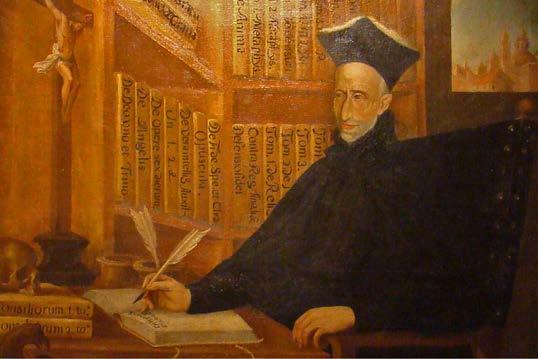

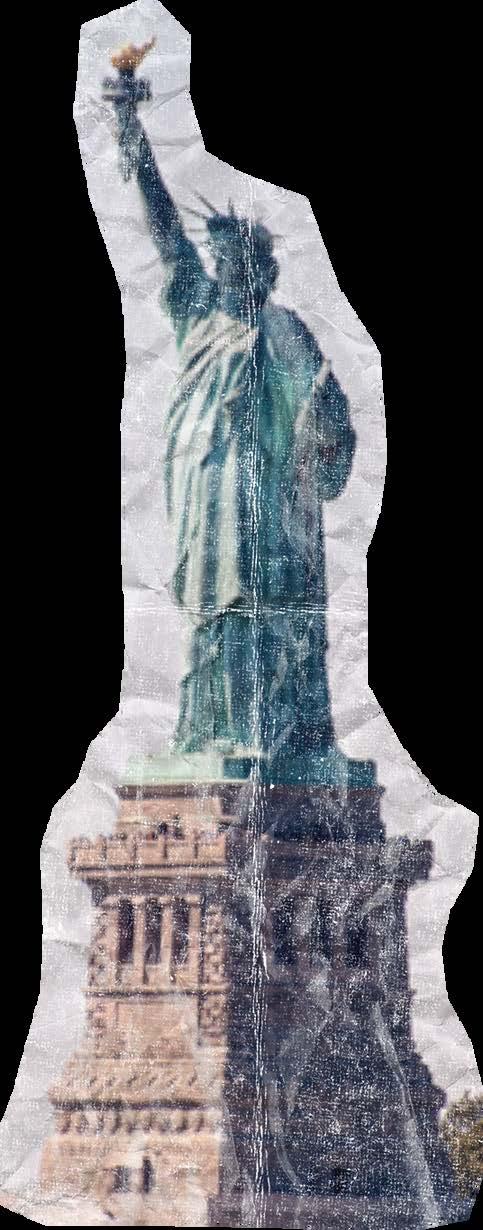
The University of Michigan’s PPE speaker this year was Akhil Reed Amar, Sterling Professor of Law and Political Science at Yale. His passion is the U.S. Constitution, which he approaches from the perspectives of law, history, and political science. He is one of the legal scholars most frequently cited by the U.S.SupremeCourt.
Amar’s lecture, “The Constitution and the Presidency”, focused on the birth of the Constitution: how it was put to the people in 1787 as a plan for how the United States should be governed, and how that plan was subject to public scrutiny for nearly a year before it was ratified. Amar impressed upon the audience the global historical significance of this event: that it marked the beginning of our modern era in which self-governing publics are the norm. He also urged the audience to think about the Constitution as a force for political unity in the United States; in his words, “it is the one text that unites us”. This thought is behind the title of his new book, The Words that Made Us, America’s Constitutional Conversation, 1760-1840. It is the first in a trilogy of books which seek to explore how conversations about the Constitutionhaveshapedthedocumentoverthepasttwocenturies.
During the question-and-answer session, Amar discussed such topics as: (a) the Constitution as an intergenerational project which each generation has the responsibility to contribute to; (b) his preferred originalist approach to the interpretation of the Constitution and how that influences his views on certain controversial rulings such as the overturning of Roe v. Wade; (c) the justifiability of the high standards required for Constitutional amendments; (d) how best to interpret the Second Amendment; (e) the Supreme Court’s recent decision to end the Chevron Deference and the implications this will have on the influence of federal agencies; (f) and other aspects of the political moment such as the reluctance of Congress to legislate and the role ofpublicschoolinginforginganationalidentity.
We encourage you to watch his lecture on the University of Michigan’s YouTubepage.

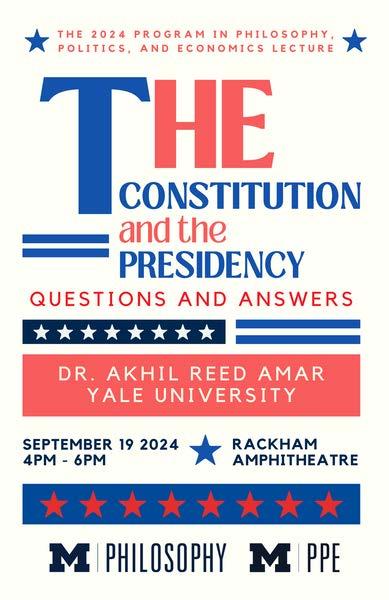
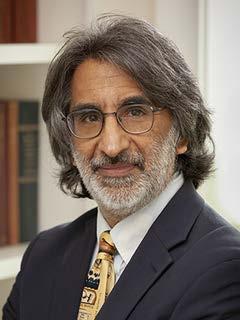
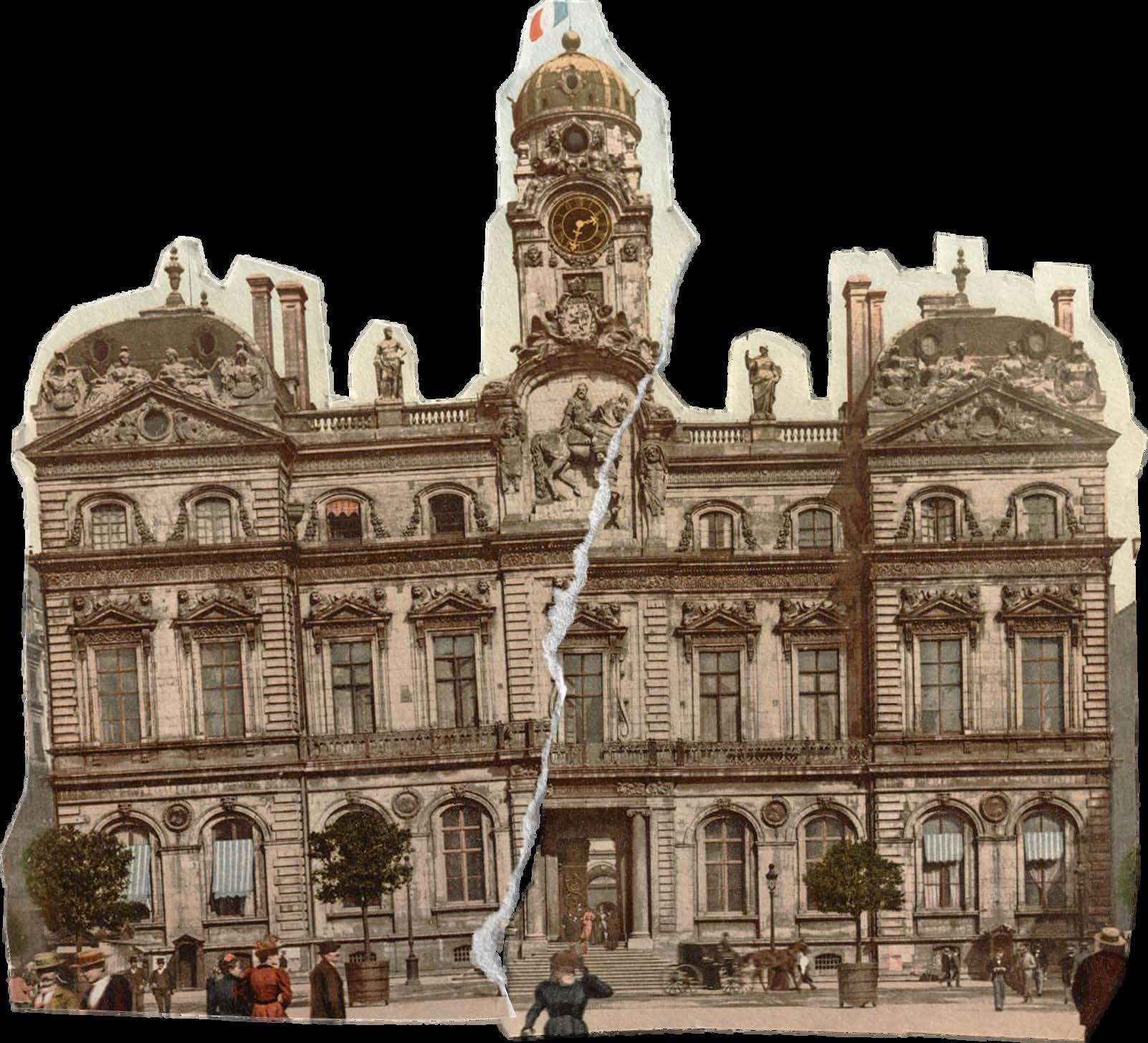


2023-2024TannerLecture–heldApril16&17,2024
The University of Michigan’s Tanner Lecturer this year was Hélène Landemore, Professor of Political Science at Yale University. Professor Landemore is a leading scholar with a specialization in political theory. Her research and teaching interests include democratic theory, political epistemology, and the ethics and politics of artificial intelligence. She is also a fellow at the Ethics in AI Institute at the University of Oxford as well as an advisor to the Democratic Inputs to AI Program at Open AI.
Her lecture, “Truth and Love in Politics,” delivered on April 16th, discussed the role of truth in (democratic) politics as it is related to the concept of love. Contrary to Arendt (and Rawls following her), who believed that truth should be excluded from our political vocabulary as too dangerous and intolerant, Professor Landemore previously argued that truth is the natural horizon of political deliberation among equals. It is a necessary concept, although it need not be seen in Platonic terms as one and immutable. Instead, it can be conceptualized as plural and partly evolving with the community that seeks it. In this lecture, she refines that claim and further extends her critique of Arendt, Rawls, and much of contemporary political science. She recognizes that not only does truth need to underpin political deliberations among equals, but it also requires the emergence and cultivation of a specific emotion among participants in the deliberation. She also provides (qualitative) empirical evidence from her direct observations of two French citizens’ assemblies: the Citizens’ Convention for Climate and the Citizens’ Convention on End-of-Life Issues.
In these assemblies, composed of randomly selected ordinary citizens who deliberated for extended periods on complex political issues, the deliberative process succeeded due in part to the emergence of a strong civic bond. This bond, which the citizens themselves identified as a form of love, was crucial. While love did not always prevail, it enabled the groups to overcome many challenges and deep disagreements over values and interests. It also facilitated the inclusion of minorities in ways that sheer majoritarianism could not. If this connection between truth and love is valid, it may partly explain why our post-truth political systems are generally dysfunctional and particularly susceptible to disinformation, lies, and fake news. She notes that it is not just the lack of proper deliberation in the system; it is also the absence of enough love to make proper deliberation possible in the first place.
At our Tanner Symposium held the following day (April 17th), a distinguished panel of professors commented on Professor Landemore's lecture. This included Kyla Ebels-Duggan, Professor of Philosophy at Northwestern University; Don Herzog, the Edson R. Sunderland Professor of Law at the University of Michigan School of Law [note: Professor Herzog could not attend due to illness and his comments were read by Professor Elizabeth Anderson (U-M Philosophy)]; and Anne Phillips, Emeritus Professor at the London School of Economics, with Professor Landemore replying. Ekow Yankah, Associate Dean for Faculty and Research and Thomas M. Cooley Professor of Law, University of Michigan School of Law, with a courtesy appointment in U-M Philosophy, moderated the Symposium.
Lea Ypi, Professor in Political Theory at the London School of Economics, has accepted our invitation to deliver the 2024-2025 Tanner Lecture, tentatively scheduled for November 18 & 19, 2025. Professor Ypi is also an Adjunct Associate Professor in Philosophy at the Research School of Social Sciences, at the Australian National University. Her research interests include normative political theory, enlightenment political thought, Marxism and critical theory, as well as the role of nationalism in the intellectual history of the Balkans, specifically Albania. The topic has yet to be decided but will undoubtedly be well received.
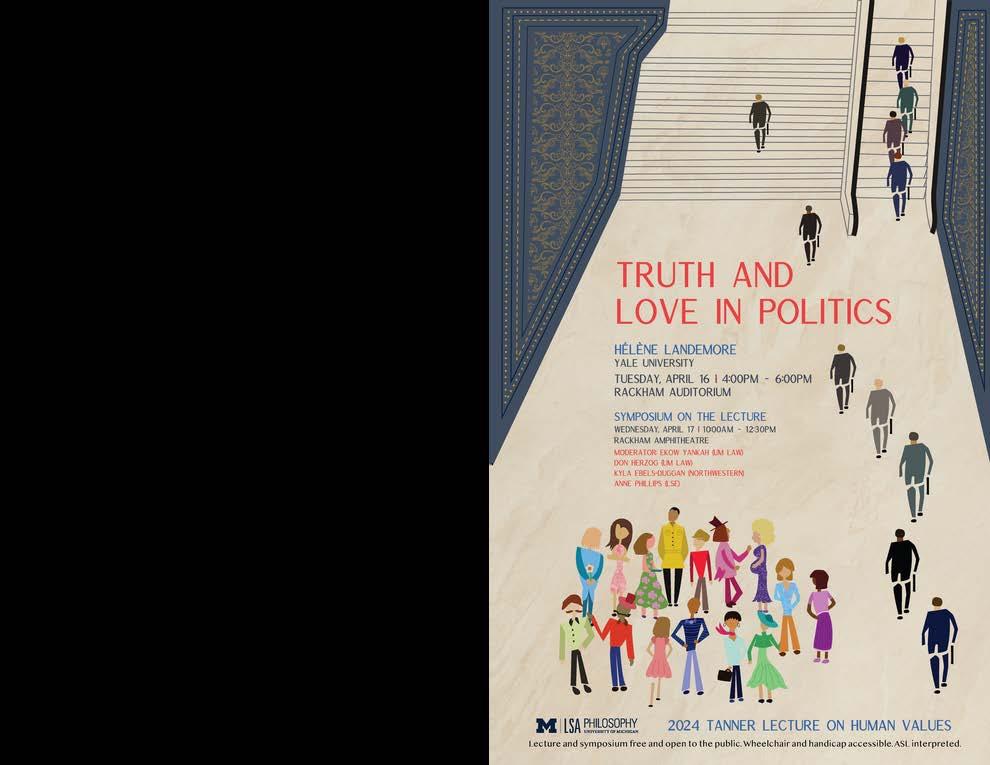

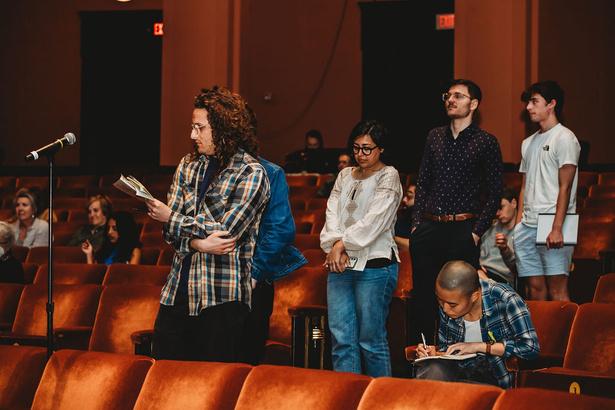
AARONGLASSERDURINGTHEQ&A

HÉLÈNE
“TRUTH AND LOVE IN POLITICS”
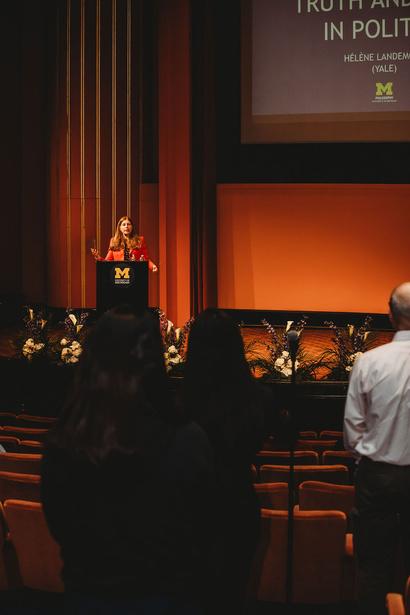
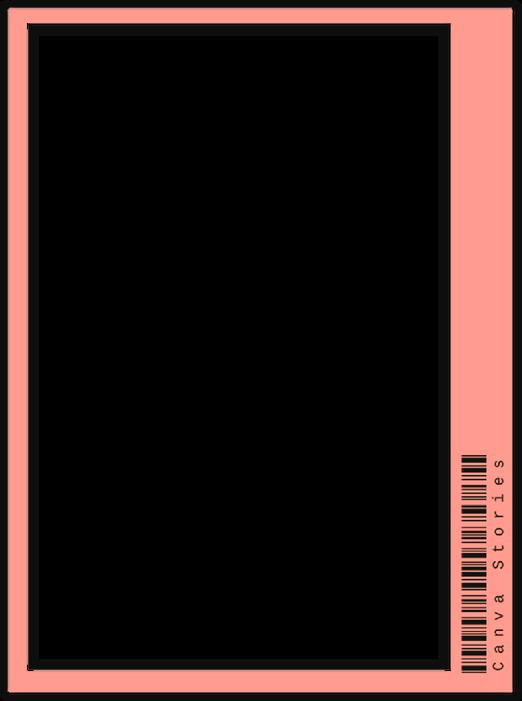








SincetheuntimelypassingofourhighlydecoratedandrenownedPhDgraduate MajorIanFishback(PhD2020)onNovember19,2021,allofusinthePhilosophy department at the University of Michigan have continued to reflect on the remarkable legacy that he left behind. To mark this day as a tribute, and to reflectonourhonorofhavingknownsuchatirelessdefenderofhumanrights, wededicatedatreeinNicholsArboretumasalastingmemorialtoIan'smemory.
ThistreewillcommemorateIan'simpacton,andwellbeyond,themembersof ourdepartmentandcommunity,andwehopeitwillalsoprovideaplacewhere we can go to reflect on Ian's contributions to the discourse on ethics while enjoyingsometimeinnature,asIanoftendid.
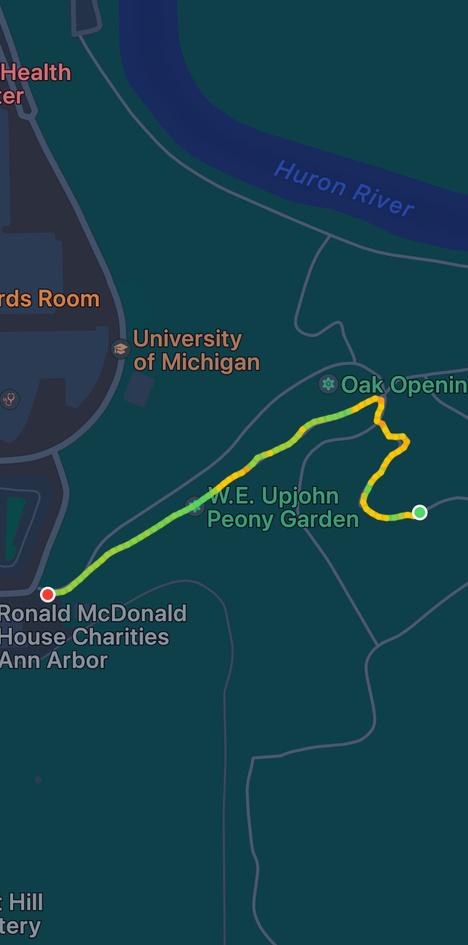
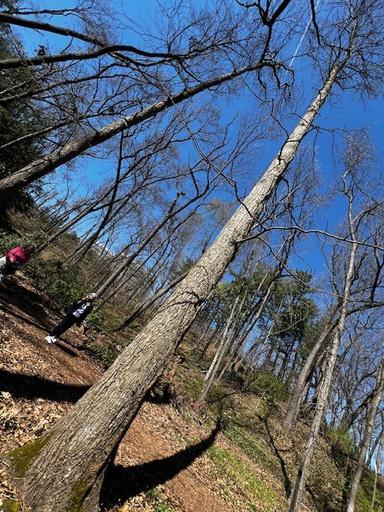
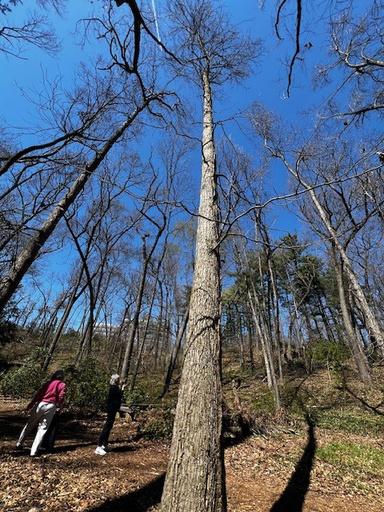




Alvin I. Goldman, a longtime faculty member in the Philosophy Department of the University of Michigan, passed away on August 4, 2024. Born on October 1, 1938, he died on August 4, 2024. He received his B.A. from Columbia University in 1960, and his PhD from Princeton in 1965. His first academic appointment was at the University of Michigan (1963-1980), where he also served as Chair of the Department from 1977–1980. He subsequently held appointments at the University of Illinois at Chicago (19801983), the University of Arizona (1983-2002), and Rutgers University, where he served as Board of Governors Professor of Philosophy and Cognitive Science from 2002 until his retirement in 2018. In later years he held the position of Distinguished Research AssociateattheUniversityofCalifornia,Berkeley.
Goldman was, without doubt, one of the most important epistemologists of the last 80 years. In a 2016 Leiter Report poll of about 400 of his peers, he emerged as the second most influential Anglophone epistemologist working in the period since 1945 (after only the then-late W. V. O. Quine). Goldman also made major contributions to cognitive science,philosophyofmind,politicalphilosophy,metaphysics,andactiontheory.
Goldman’s approach to epistemology was resolutely naturalistic. His work sought to explain how epistemic states – such as knowledge and justification – fit into the natural world. His “Causal Theory of Knowing” (Journal of Philosophy, 1967) analyzed knowledge as a causal relation between facts in the world and an agent’s beliefs. One of his most important contributions to epistemology was his development and defense of process reliabilism about justification, which analyzes the justificatory status of a belief in terms of the reliability of the psychological processes that caused the belief (“What is Justified Belief?,” in Pappas (ed), Justification and Knowledge). This was a revolutionary approach to justification. It parted ways with internalist theories of justification (the dominant approach at the time), which took justification to depend on factors that are internally accessible to the believer. It also rejected the “current time slice” approach to justification, according to which the justificatory status of an agent’s belief depends only on facts that they obtain at the time of the belief. According to Goldman, any adequate theory of justification will need to take into account the belief’s prior history. Consequently, no time-slice view could be right. Goldman developed and refined his reliabilist theory over the course of his career (e.g., Epistemology and Cognition, 1986; “InternalismExposed”, JournalofPhilosophy, 1999).
Goldman was also a pioneer of social epistemology. Historically, much of epistemology has had an individualistic bent. In the tradition of Descartes, it has focused on the perspective of an agent who is trying to attain truth (or justification or knowledge), on their own, in isolation from their social surroundings. Social epistemology, by contrast, looks at the role of social practices in generating knowledge in both individuals and groups. Goldman’s Knowledge in a Social World (1999) offered a distinctively reliabilist version of this approach, examining how social structures can be evaluated in terms of their truth-conduciveness. This book laid the groundwork for much subsequent work in socialepistemology.
Goldman also had enormous influence in cognitive science. His 2006 book, Simulating Minds, provided an influential and systematic defense of simulationism, the idea that we often attribute mental states to others by first simulating a mental process in ourselves. Throughout his work, he explored the ways in which work in cognitive science can fruitfully bear on other areas of philosophy, particularly epistemology and metaphysics (e.g., Liaisons: Philosophy Meets the Cognitive and Social Sciences, 1992; Philosophical ApplicationsofCognitiveScience,1993).
Goldman was the author of 10 books and over 150 articles, many of them now classics in the field. A Guggenheim Fellow from 1975–76, in 1991–92 he served as president of the American Philosophical Association, Pacific Division. He was elected a Fellow of the American Academy of Arts and Sciences in 2004. From 2005–2014 he was the Editor–in–Chief of the epistemology journal Episteme. A Romanell Prize Lecturer of the American Philosophical Association in 2010, he was also a co-winner in 2015 of the Lebowitz Prize for outstanding achievement inthefieldofphilosophy.
For more than 50 years, Goldman was a dedicated and supportive teacher, mentor, and colleague in the departments he served. His kindness and encouragement shaped the careers of generations of philosophers, who now mournhisabsence.
RobertBeddor
AssistantProfessorofPhilosophy UniversityofFlorida DepartmentofPhilosophy
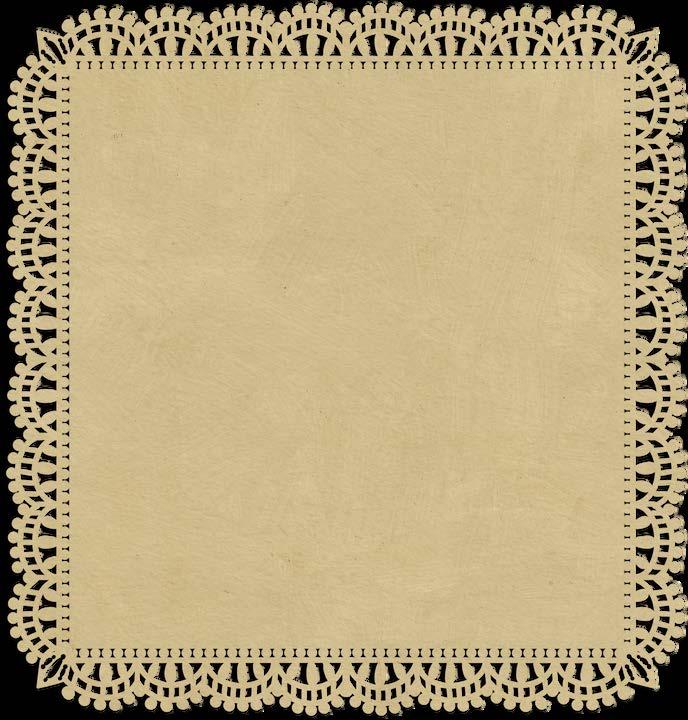
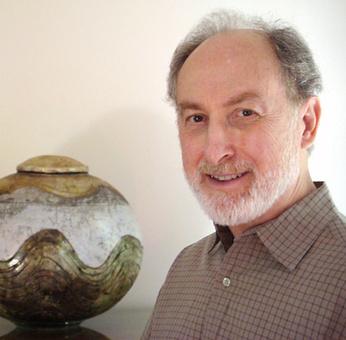



A Philosophy PhD alumni and longtime member of the Department of Philosophy at Rutgers University, New Brunswick, where he was emeritus, Professor Bolton was a specialist in ancient philosophy, particularly known for his writings on issues about metaphysics and science. Comments are open for remembrances from those who knew Professor Bolton or for those who wish to comment on the significanceofhiswork.



AllanGibbardFund
Andrew E. (AB ’79) & Diane C. Green
John M. Jennings (AB ’89)
Prof. Guha Krishnamurthi (BS ’04; MS ’05)
Dr. Ira K. Lindsay (AM ’07; PhD ’14) & Ms. Irina Trenbach
Salem-Aloisio Family Fund at Schwab Charitable
DenisePhilosophyEndowment
Dean Emerita Patricia D. White (AB ’71; JD ’74; AM ’74 [Philosophy] & James W. Nickel
ChinesePhilosophyFund
Michael Kump (MA ’76; PhD ’79)
Daniel A. Lee (AB ’92)
Prof. Louis E. Loeb – 2 donations
IleneGoldmanBlockMemorialFundinPhilosophy
Dr. Raymond A. (AB ’69; MD ’73) & Vivian Bass
Charles Berk & Debra Caplowe
David L. Birch (AB ’67)
Marsha A. Bishop
Joseph G. Block (AB ’69)
Howard Blumenthal
Joseph C. Burak (AB ’98)
Lindsay D. Chaney (AB ’73)
William D. Coston (AB ’72) & Barbara Carney-Coston
Virginia B. Dean
John F.F. (AB ’69; MBA ’81) & Virginia W. Gajewski
Marshall Goldberg & Anne Roark
Andrew E. Green (AB ’79)
Carole B. & Will Herrup
Dr. Joshua R. Hunt (MS ’19 [Mathematics]; AM ’19 [Philosophy]; PhD ’22 [Philosophy])
Mitchell Kane
Dr. Sharon I. Kean (AB ’69) & Robert A. Lipson
Thomas Kelly & Colleen Kennedy
Marny & Kenneth Kravenas
Susan G. & Leslie H. Lepow
Henry (AB ’70) & Jill F. Lerner
Joshua M. & Debra Levin
Howard S. & Sandy Marks
John M. (BBA ’70; JD ’73) & Carole T. Nannes
Bruce B. Pasfield
Andrew E. Rubin
Janet & Michael Rosenbloom
Robert & Dauphine Sloan Charitable Fund of the American Endowment Foundation
David J. Van Hoogstraten & Michelle Kayon
Jennifer S. Walker (AB ’07; JD ’12)
LouisE.LoebFundfortheHistoryofPhilosophy
William D. (AB ’92) & Sharon S. Baird
Richard B. Dyer (AB ’90)
John F.F. (AB ’69; MBA ’81) & Virginia W. Gajewski
Jeffry A. Giardina (AB ’62)
Ann K.M. Gualtieri (AM ’77; MBA ’87)
Dr. Nancy K. Hart (AM ’66; PhD ’77; MSW ’79) & Dr. Henry Greenspan
Leonard W. Hersh (AB ’82)
Dr. David Jacobi & Prof. Elizabeth Anderson
Michael Kump (MA ’76; PhD ’79)
Prof. Emeritus Louis E. Loeb
Tamatha E. Meek (AB ’98 [Phil & Poly Sci])
Reed M. (AB ’86; MS ’91) & Amy E. Perkins
Judith M. Riley (AB ’67) & Ronald W. Citkowski
PhilosophyStrategicFund
David E. (AM ’93; JD ’99) & Mary-Margaret Aman
Aren J. (AB ’97) & Sarah E. Arendsen
James A. (A.M. ‘75) & Emily Brown
Richard L. Buckles (AB ’67)
John D. Carson (BBA ’06; AB ’06 [Philosophy]) & Sarah Simpson
Susan E. Couzens Trust
Ernst & Young Foundation
Jeffrey A. Gallant (AB ’86; JD ‘90)
John F.F. (AB ’69; MBA ’81) & Virginia W. Gajewski
James Henle (AB ’76)
Leonard W. Hersh (AB ’82)
Wendy G. & Michael B. Hill
Martin J. Korchak (AB ’64)
KPMG Foundation
Aaron R. Krauss (AB ’88)
Michael Kump (MA ’76; PhD ’79)
James E. Labes (AB ’54)
Roger A. (AB ’84) & Nancy R. Lane
Daniel A. Lee (AB ’92)
Peter J. McNally (AB ’00 [Mathematics & Philosophy]; MUP ’02)
Dr. James L. (PhD ’71) & Alda Muyskens
Rayth T. Myers (AB ’04)
Angelina E. Overvold (AM ’74)
Henry & Sarah Paulson Charitable Donations Fund of the US
Charitable Gift Trust
Profs. Donald H. Regan (PhD ’80) & Elizabeth R. Axelson
Jason (AB ’01 [Asian Studies, Philosophy, Sociology]; JD ’09) & Jenny Ryu
Alexander P. Satola (AB ’21)
David Steiger (AB ’88; JD ’91)
Stephen G. Tomlinson (AB ’81 [Economics, Philosophy]; JD ’84)
& Pam Fletcher
Stephen G. Van Meter (AB ’83)
Kenneth A. Vatz (BS ’65)
Luke A. Wilson (AB ’14)
Dr. Douglas R. (AB ’72; MD ’77) & Dr. Margo Y. Woll
PhilosophySustainingFund
Dr. Richard M. Adler (BS ’74 [Philosophy, Physics) & Denise F. Konicek
David E. (AM ’93; JD ’99) & Mary-Margaret Aman
Prof. Elizabeth Anderson & Dr. David Jacobi
Mark D. (AB ’84) & Maura C. Basile
Dennis R. (AB ’67) & Martha Braddock
Profs. Victor M. & Ruth R. Caston
Michael (AB ’78) & Jill Hollenbach
Timothy J. (AB ’74) & Janice L. Howard
Jerold D. (AB ’63) & Judith H. Lax
Daniel O. (AB ’69) & Eileen P. Nathan
Craig & Sharon Rowley Charitable Fund of the Fidelity Charitable Gift Fund
PPEStrategicFund
Aren J. Arendsen (AB ’97)
Andrew D. Cattell (JD ’05)
Sean C. Fitzgerald (AB ’12)
Kim A. (AB ’90; JD ’93) & Kathleen G. Forde-Mazrui
Shannon D. Haffey (BS ’03; MHSA ’05)
James Henle (AB ’76)
Keturah R. Ladd (AB ’05)
Peter & Christena A. Lambrianakos
Tamatha E. Meek (AB ’98)
Dr. Bryan G. Norton (AB ’66, PhD ’70)
Dr. Benjamin Rechner & Melinda Johnson
Alexander P. Satola (AB ’21)
RememberingCandaceBolter
Dr. Charles E. M. Dunlop
TannerLibraryFund
Bruce & Merlee Bartman Memorial Fund of the Ann Arbor Area Community Foundation
James T. Bork (AB ’86)
Robert S. Cox (AB ’94)
Benjamin R. (AB ’04) & Heidi H. Dryden
Richard J. Eichmann (AB ’95 [Economics]; AB ’95 [Philosophy]; AM ’96 [Economics] & Jessica Gray
Leonard W. Hersh (AB ’82)
John M. Jennings (AB ’89)
Margaret J. Livingston (AB ’75)
Wendy M. & George A. Martinez
Ross S. Riddell (AB ’76; MBA ’81 [Ross])



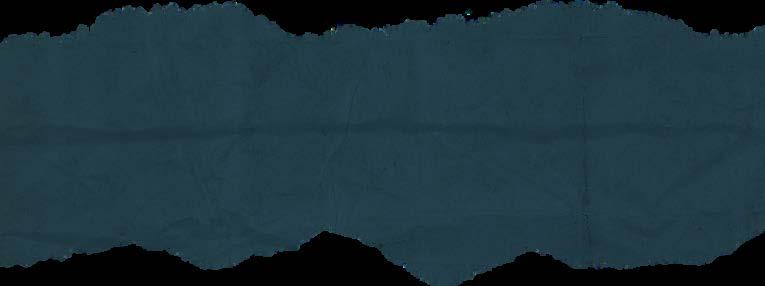

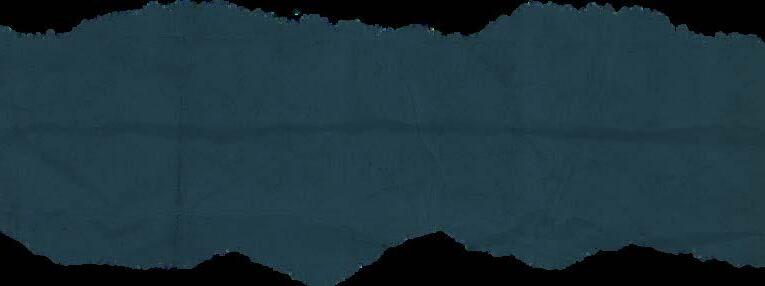


TheUniversityofMichigan,asanequalopportunity/ affirmative action employer, complies with all applicable federal and state laws regarding nondiscrimination and affirmative action. The University of Michigan is committed toapolicyofequalopportunityforallpersonsanddoesnot discriminateonthebasisofrace,color,nationalorigin,age, marital status, sex, sexual orientation, gender identity, gender expression, disability, religion, height, weight, or veteran status in employment, educational programs and activities, and admissions. Inquiries or complaints may be addressedtotheSeniorDirectorforInstitutionalEquityand TitleIX/Section504/ADACoordinator,OfficeforInstitutional Equity, 2072 Administrative Services Building, Ann Arbor, Michigan 48109-1432, 734-763-0235, TTY 734-647-1388. ForotherUniversityinformation,pleasecall734-764-1817.


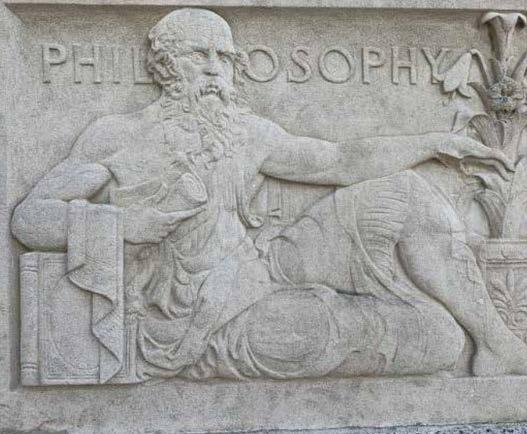

MichiganPhilosophyNews/”TheGRUE” DepartmentofPhilosophy
2215AngellHall/435S.StateStreet AnnArborMI48109-1003



